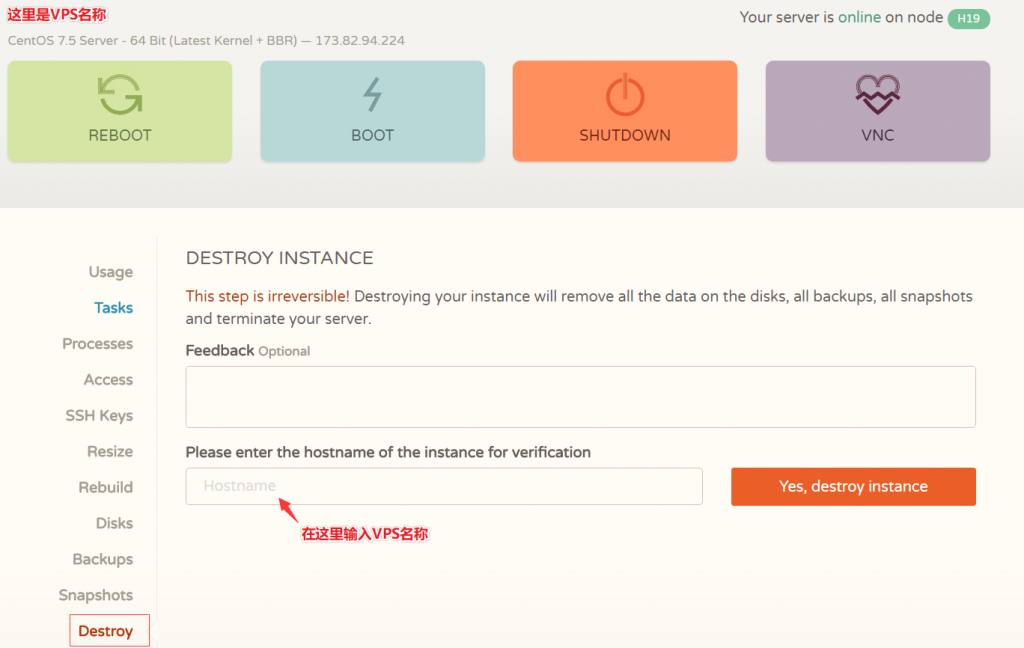reprehtmldisabled
htmldisabled 时间:2021-05-22 阅读:()
1CurrentsituationandprospectsforchangeDISABLEDBEGGARSINADDISABABAdisabledbeggarsinaddisababaCurrentsituationandprospectsforchangeNoraGroce,BarbaraMurray,AnnaKealyCopyrightInternationalLabourOrganization2014Firstpublished2014PublicationsoftheInternationalLabourOfficeenjoycopyrightunderProtocol2oftheUniversalCopy-rightConvention.
Nevertheless,shortexcerptsfromthemmaybereproducedwithoutauthorization,onconditionthatthesourceisindicated.
Forrightsofreproductionortranslation,applicationshouldbemadetoILOPublications(RightsandPermissions),InternationalLabourOffice,CH-1211Geneva22,Switzerland,orbyemail:pubdroit@ilo.
org.
TheInternationalLabourOfficewelcomessuchapplications.
Libraries,institutionsandotherusersregisteredwithreproductionrightsorganizationsmaymakecopiesinaccordancewiththelicencesissuedtothemforthispurpose.
Visithttp://www.
ifrro.
orgtofindthere-productionrightsorganizationinyourcountry.
ILOCataloguinginPublicationDataGroce,Nora;Murray,Barbara;Kealy,AnnaDisabledbeggarsinAddisAbaba:currentsituationandprospectsforchange2014/NoraGroce,BarbaraMurrayandAnnaKealy;InternationalLabourOffice.
-Geneva:ILO,2014ISBN:9789221288107(print);9789221288114(webpdf)InternationalLabourOfficebegging/disabledperson/disability/rightsofdisabledpeople/poverty/urbanarea/Ethiopia/mendic-ité/handicapé/incapacité/droitsdespersonneshandicapées/pauvreté/zoneurbaine/Ethiopie/mendicidad/personacondiscapacidad/discapacidad/derechosdelaspersonascondiscapacidad/pobreza/zonaurbana/Etiopia13.
01.
2Thisdocumentisbasedonthepublicationentitled"DisabledBeggarsinAddisAbaba,Ethiopia"pub-lishedin2013bytheEmploymentSector,SkillsandEmployabilityDepartment.
ThedesignationsemployedinILOpublications,whichareinconformitywithUnitedNationspractice,andthepresentationofmaterialthereindonotimplytheexpressionofanyopinionwhatsoeveronthepartoftheInternationalLabourOfficeconcerningthelegalstatusofanycountry,areaorterritoryorofitsau-thorities,orconcerningthedelimitationofitsfrontiers.
Theresponsibilityforopinionsexpressedinsignedarticles,studiesandothercontributionsrestssolelywiththeirauthors,andpublicationdoesnotconstituteanendorsementbytheInternationalLabourOfficeoftheopinionsexpressedinthem.
ReferencetonamesoffirmsandcommercialproductsandprocessesdoesnotimplytheirendorsementbytheInternationalLabourOffice,andanyfailuretomentionaparticularfirm,commercialproductorprocessisnotasignofdisapproval.
ILOpublicationsandelectronicproductscanbeobtainedthroughmajorbooksellersorILOlocalofficesinmanycountries,ordirectfromILOPublications,InternationalLabourOffice,CH-1211Geneva22,Switzerland.
Cataloguesorlistsofnewpublicationsareavailablefreeofchargefromtheaboveaddress,orbyemail:pubvente@ilo.
orgVisitourwebsite:http://www.
ilo.
org/publnsDesignedandlayoutbytheInternationalLabourOffice,Geneva,SwitzerlandDTPPrintedbytheInternationalLabourOffice,Geneva,SwitzerlandIntroduction.
p.
7Background.
p.
8Internationalcontext.
p.
12TheEthiopiancontext.
p.
22Findings.
p.
28Conclusionsandrecommendations.
p.
48Tableofcontent7IntroductionWorldwide,personswithdisabilitieswhobegforpartoralloftheirlivingareoneofthemostvisibleandleastunderstoodgroupswithintheglobaldisabledpopulation.
Thisexploratorystudyisintendedtobetterunderstandwhatlifeislikefortheseindividuals.
Itisamixedmethodsstudywithanin-depthliteraturesearchfollowedbythepresentationofdatafromafieldstudywhichcollectedandanalyzedqualitativeandquantitativedatatoprovideaninitialunderstandingofdisabledbeggarsinonespecificcommunity–urbanAddisAbaba.
Personswithdisabilitieswereaskedhowtheycametobeg,whattheirlivesareonadailybasisandwhattheywouldliketheirfuturestobe.
Particularattentionwaspaidtoidentifyingpointswherein-terventionstobreakthecycleoflivingwithadisabilityandbeggingmightbeimplemented,andtodevelopandvalidateasurveytoolandappropriatesetofopen-endedqualitativequestionsthatcouldbeusedforalarger,multi-countrycom-parativestudyofdisabledstreetbeggarsinthefuture.
ThisSummaryPaperpresentskeyfindingsfromthestudy.
AmoredetaileddiscussioniscontainedintheILOWorkingPaperDisabledBeggarsinAddisAbaba,EmploymentWork-ingPaperNo.
141,ILOGeneva,2013.
8Background9BackgroundWhenbeggingactuallybeganisunknown.
Historically,refer-encestopersonswithdisabilitieswhobegappearasearlyasthewrittenworditself,andarefondthroughouttheBible,inGreek,RomanandChinesehistory,aswellasinthehistor-icalaccountsofallothermajorcivilizations.
Intraditionalsocieties,theneedsofvulnerableindividualswhocannotprovideforthemselvesarefirstmetbyfamily,extendedfamilyorthroughgroupactionwithinthecommuni-ty.
Iftheseresourcesareexhausted,manytraditionalsocie-tieshaveasthenextsteporganizedsourcesofsocialandeconomicsupportthroughclangroups,religiousorganiza-tions,guilds,associationsorothermoreformalorganizations.
Thisisoftendoneonan"asneeded"basis,witheveryoneinthecommunityawareofaparticularlyvulnerableindividualorhousehold.
Butiftheindividualorhouseholdhasmorere-quirementsthancanbemetwithlocalresources,oriftheindividualisnotwillingtoconformtotheexpectationsforreceivingtheseresources,thenbeggingmaybeanoption.
Beggingisanactivitywhichallowsanindividualtocalluponpeoplewithwhomheorshehasnoclosetiesforsmalldona-tionstomeetbasicneeds.
Itisamechanismthroughwhichthecommunityensuresthatitsverypoorestmemberswillnotstarve.
Thedisability—povertylinkInmanysocietiesthereisastrongassociationbetweenpov-erty,disabilityandbegging.
Ifapersonisbornwithadisabil-ityorbecomesdisabled,itisoftenassumedthatmostorallotheroptionscloseandtheonlychoicelefttomeetbasicneedsistobeg.
Itisfurtherassumedthatpeoplewhobegdosobecausetheyaretrappedina"cycleofpoverty"andthatbeggingisanactivityoradaptationoflastresort.
Moreover,thereisatradi-tionallinkbetweenpovertyanddisability.
Poorpeopleareatgreaterriskofbecomingdisabledthroughlackofadequatehousing,food,cleanwater,basicsanitationandsafeworkingenvironments.
Peoplewithdisabilities,inturn,areatin-creasedriskofbecomingpoorthroughrestrictedaccesstoeducation,healthcare,jobtrainingandemploymentopportu-Beggingisdefinedforthepurposesofthisstudyasarangeofactivitiesthroughwhichanindividualasksfellowcommunitymembersorstrangersformoney,foodorotherresourcesonthebasisofbeingpoororneedingcharitabledonationforbasicsurvival,healthorreligiousreasons.
10nities.
Thesefactors,incombinationwiththeeffectsofstig-maandsocialisolation,limittheabilityofpeoplewithdisa-bilitiestobefullparticipantsintheirsocietiesandtofindemploymentthatwillsupportthemandtheirfamilies.
TheknowledgegaparounddisabledbeggarsInthelightofthislonghistory,itisremarkablethatsolittleisknownaboutpeoplewithdisabilitieswhoworkasbeggarsinthetwenty-firstcentury.
Theglobaldevelopmentcommunity,nottomentiontheglob-aldisabilityadvocacycommunity,haspaidlittleattentiontomen,womenandchildrenwithdisabilitieswhomaketheirliving,inwholeorinpart,bybegging.
Thisgapinknowledgeisparticularlystrikingbecause,worldwide,beggingisacom-monandhighlyvisibleformofmakingalivingoutsidethehomeforpeoplewithdisabilities.
Thereasonforthislackofattentionisunclear.
Ithasbeensuggestedthatbeggarsthemselvesareunwillingorunabletospeakwithresearchers,developmentworkersorhumanrightsadvocates.
Somesuggestthatthosewhobegareashamedofthelivestheylead,fearfulofthepoliceorwor-riedaboutcriminalsorother"handlers"whowouldpunishthemforspeakingout.
Allofthesereasonsmayaccountforsomepartoftheknowledgegap,butitisalsotruethatmanywhoworkondevelopmentandpovertyissueshaveoverlookedthisgroup,assumingeitherthattheycannotbereachedorthatnewdisabilitylawsandprogrammeswilleventually"trickledown"andincludethemaswell.
ThisstudyofpeoplewithdisabilitieswhoworkasbeggarsonthestreetsoftheEthiopiancapitalisoneofthefirststudiestohavequestioneddisabledbeggarsthemselvesabouttheirdailylives.
1112Theinternationalcontext13TheinternationalcontextUrbanphenomenonWhilebeggingisnotunknowninruralareas,beggarsinruralhamletsandvillagesarerare,andevenmarkettownsandsmallercitiesusuallyhavenomorethanafewbeggars.
Thepopulationbaseinsuchcommunitiesissimplytoosmall:fewbeggarscanbesustained.
Beggingismorecommoninurbanareas,withthepopulationofbeggarsinurbanareasdrawnfromthesurroundingcountryside,aswellasreflectingrisingpopulationswithinthecitiesthemselves.
Thephenomenonappearstobecloselytiedtothegrowthoflargecities,whichprovidebothgreateranonymityandabroaderbaseforsup-port.
Peopleinurbanareastendtobemoreisolated,knowlessabouttheirimmediateneighbours,andlittleornothingaboutpeoplewholiveinotherpartsoftheircity.
Anonymitycanbeanadvantagetoabeggar,allowingthemtoaskforhelpwithouthavingpeopleknowmuchaboutthemorpassjudgmentonthebeggarorthebeggar'sfamily.
Identifyingtheneedsofpoorandvulnerableindividualscannot,however,bedoneonthesamebasisasinsmallersocieties.
Instead,asystemwherebymanymembersofthegeneralcommunityeachshareasmallamountoftheirownwealth–coins,piecesofbread,usedclothing–seemstohavearisenasamecha-nismthroughwhichpeoplecanidentifythemselvesasbeing'inneed'andbeprovidedfor.
Alargerpopulationallowseachindividualtogiveasmallamountirregularlyandstillprovideforthosewhobeg.
Beggarsincitiesarealsomostprobablyabletomakemoremoney,astheyarenotcontinuallyrequestingalmsfromthesamelimitedpopulation.
Whiletherearefewstatisticsavailablecomparingincomeofbeggarsinruralversusurbanareas,inarecentnewspaperarticlefromIndiaitwasestimatedthatwhileruralbeggarscollecttwotothreerupeesperday,citybeggarscancollectupto400rupeesperday(USD$10).
Thislinkbetweenbeggingandthegrowthofurbancentresisnotonlyofhistoricalinterest.
Theunprecedentedaccelera-tionofruraltourbanmigrationgloballymeansthatbeggingmaywellgrowrapidlyoverthecomingdecadesasmillionscontinuetopourintocitiesfromthesurroundingcountryside.
14Thisiscompoundedintimesofpolitical,socialandeconomicinstability,orwhenhumanitarianorenvironmentaldisasterleavesmanywithnootheroptionsfortakingcareofthem-selvesandtheirfamilies.
ToleranceofbeggingSupportisnotgiventoallbeggarsequally.
Ineverysociety,thereareprioritiesaboutwhichgroupsdeservesupportfromthegeneralpublicandcharitableorganizationsandthosewho,forwhateverreasons,donot:the"deserving"andthe"undeserving"poor.
Beggingbyindividualswhomthepublicconsidersdeservingbecausetheyareotherwiseunabletomeetthemostbasicofneeds–suchasfood,housing,andclothing–istolerated,whilebeggingbythoseperceivedasundeserving,isnot.
Throughouthistory,popularculturehasalsobeenfullofsto-riesandfolkloreaboutbeggarswhotakeadvantageofthesystem–beggingwhentheydonotneedto,makingfarmoremoneythanpeoplewith"real"jobs,ornon-disabledindividu-alspretendingtobedisabled.
Examplesofpeoplebeggingwhentheyarenotimpoverishedhavegainedconsiderablepressattentioninseveralcountriesinrecentyears.
InPaki-stan,forexample,ithasbeenreportedthatsomemid-dle-classpeoplehaveaddedtotheirincomethroughbeggingafterhours.
Severalyearsago,Yemenwasabuzzwithreportsof"seasonalbegging",withfamilieswhowereotherwisewellabovethepovertylineturningtobeggingatcertainperiodsoftheyeartomeetelectricalbillsandhealthexpenses.
InMo-rocco,agovernmentsurveyfoundthat62.
4percentofbeggarshadbankaccountsandanumberhadprocuredrealestatewiththeirbeggingmoney.
Beggarswhocouldearntheirlivingfromothersources–the"undeservingpoor"–arealmostuniversallyseenastakingadvantageofasystemintendedonlyfortheveryneedy.
Fur-thermore,beggingbythosewhoare"undeserving"isoftenas-sociatedwithdrugoralcoholabuseandantisocialorcriminalbehaviours,athreattothesocialorder.
Forexample,inbothdevelopedanddevelopingcountrieswithinthepastdecade,therearenumerousreportsofgroupsorgangsofpeopleorgan-izedtobeg,oftenbycriminalsorotherswhoseektoprofitfromtheirefforts.
Suchorganizedbeggingisoftenfurtherlinkedto15corruptpoliceofficersorgovernmentofficials,bribedinordertoallowbeggingtocontinueundisturbed.
Whilebeggingisalsopracticedbythenon-destituteatcer-taintimes,suchasduringreligiouspilgrimages,intheelitera-turereviewundertakenforthisproject,nosocietywasidenti-fiedwherebeggingisconsideredalong-term,viableoptionforhealthyadultsofworkingage.
Ingeneral,beggingisseenasthelastresortforpeoplewhohavefoundthemselvesinadownwardspiralofpovertyandadversity.
IInsocietieswherebeggingiscommon,womenwithinfantsandchildrenoftenheadthelistofthoseconsid-eredjustifiedinbegging.
Thisisespeciallythecaseinplaceswheretherearelimitedoptionsforwomenifabandonedorwidowed.
Thefrailandelderlyalsoareusuallyconsideredworthy.
Butinallsocieties,begginghasbeenroutinelycon-sideredanacceptableway,andinsomecasestheonlyway,forpeoplewithdisabilitiestomakealivingoutsidethehome.
Accuratestatisticscurrentlyexistneitheronthenumbersofpeoplewithdisabilitieswholivebybeggingnorontheper-centageofindividualsthatthisconstituteswithinthelargerdisabledpopulation.
Thefollowingfactorsareoftenraisedintheliteraturewhenbeggingisdiscussed:LackofsocialsupportnetworksCross-culturally,thelackofsocialsupportnetworksuponwhichtheverypoorestcanrelyifacrisisoremergencywipesouttheirlimitedresourcesissuggestedasakeyfactorinmakingsomeindividualsresorttobegging.
Acrisisatacriticaljuncture–ahealthissue,thelossofacrop,ahomeorasetoftools–alltoooftenpushesthosewhoarealreadypoorintodestitution.
Suchfactorsmustalsoplayapartinpushingsomedisabledpeoplealreadylivinginpovertyoverthedividinglinebetweenin-come-generatingworkorrelianceonfamilyorothersup-portmechanisms,howeverlimited,andbegging.
InternalizedsocialstigmaThedecisiontoworkasabeggarmaynotbewhollyeconomic.
Somearguethatpeoplewithdisabilitiesbegbe-causeofaninternalacceptanceofprevailingsocialstigma,16notingthatcharacteristicsassociatedwithdisability,suchaslowproductivityandhelplessness,becomecementedintothemindsofpeoplewithdisabilitieswhoaccepttheroleconstructedforthem.
Thisoutlook,however,"blamesthevictim"withoutconsideringlargersocial,cultural,eco-nomicandpoliticalpressures.
Nordoesitexplainwhysomepeoplewithdisabilitieschoosetobegandotherswithcom-parabledisabilitiesfromsimilarbackgrounds,donot.
Conversely,ithasbeenarguedthatinsomecases,beggingisachoicemadebypeoplewithdisabilitiestopreservetheirautonomy,evenwhenalternativesourcesofsupportorworkareavailabletothem.
EducationandskillslevelsPeoplewhoarebornwithadisabilityorwhobecomedisabledinchildhoodoradolescenceareoftenexcludedfrommainstreameducation,facesocialexclusionfromthegeneralcommunity,andexperiencealackoffamilyandcommunitysupport.
Thosewhoacquireadisabilitylaterinlifemayfindthattheireducation,skillsandworkhistorycountforlittleiftheyareunabletoperformtheirpreviousjobandifrehabilitationandretrainingopportuni-tiesareunavailable.
Thisdisadvantage,incombinationwithotherfactorsde-tailedhere,canmakeitdifficultorimpossibleforpeoplewithdisabilitiestolocateandmaintainemploymentinei-thertheformalortheinformaleconomy.
LimitedemploymentprospectsMuchofthedataavailableonemploymentratesamongpeoplewithdisabilitiesaredrawnfromstatisticsfromde-velopedcountries;indevelopingcountries,however,muchofthelabourforce,includingpeoplewithdisabilities,en-gageintheinformaleconomy.
Insucheconomies,millionsofpeoplewithdisabilitieslackthefinancialresourcesandtheentrepreneurialskillsneededtobegineventhesmallestofenterprisesNorareproblemslimitedtothepresenceorabsenceofajoborself-employment.
Peoplewithdisabilitiesaregeneral-lybelievedtobethe"lasthired"and"firstfired",andaresignificantlylesslikelythannon-disabledco-workerstobepromotedorgetawageraise,sointimesofeconomic17downturn,peoplewithdisabilitieswithformaljobsareoftensaidtobethefirsttojointheranksoftheunemployed,andthosewhoareself-employedoftenfindtheirabilitytosellsmallitemsorprovideunskilledservicesseverelycurtailed.
Modifiedformsofbeggingarecommoninanumberofcountries.
Historically,singingormusicianshiphaslongbeenassociatedwiththeblind.
Therighttoselllotteryticketsornewspapersisoftenallocatedtopeoplewithvisualimpairmentsorphysicaldisabilities.
SignlanguagealphabetcardsaresoldbysomemembersoftheDeafcommunity.
Whilesuchactivitiesareoftendefinedas"work",thesellingoflotteryticketsandothersmallitemsisviewedwidelybythepublicasanorganizedformofcharityforpeoplewithdisabilities,andisoftendoneincombinationwithbegging,asthereturnisverylimited.
SocialprotectionframeworksIncountrieswithestablishedsocialwelfaresystemsanddedicateddisabilitybenefits,beggingbypeoplewithdisa-bilitiesappearstobefarlesscommon.
Ideally,suchsocialwelfareschemesshouldprovideasafetynet,allowingindi-vidualswithdisabilitiesandtheirfamiliestomeetbasicneedswithdignityandchoice.
However,benefitsareoftennotsufficienttomeetallneedsofpeoplewithdisabilitiesandinsomecountries,eligibilityrestrictionsandthecom-plexapplicationprocessesmeanthatmanypeoplewithdisabilitiesdonotreceivethebenefitstowhichtheyareentitled.
Andcertainpeoplewithdisabilitiescontinuetobegevenwhensupportsystemsworkwell,possiblybe-causeitallowsthemautonomyfromtheexistingsystemsthatplacetheminthepositionofdependents.
DownwardspiralofpovertyOvertime,anunemployedandimpoverisheddisabledperson'ssituationmaybefurtherexacerbatedbylackofbasichousing,orlackofaccesstofoodandcleanwater,healthservicesandsocialsupportnetworks,creatingaviciouscycleofpoverty,ill-healthandsocialmarginaliza-tion.
Theresultisthatpeoplewithdisabilitiesaresignifi-cantlyover-representedamongthepoorandunder-repre-sentedwithinnationalworkforces.
Thisistrueofbothdevelopinganddevelopedcountriesandoftheformalandinformaleconomies.
18Inlightofthesechallenges,thedecisiontotrusttoone'sowneffortstoearnalivingbybeggingmaybearationaleconomicdecision,nomatterwhatthesocialandpsycho-logicaltolltheindividualincurs.
Organizedbegging,forcedbegging,andintentionalmaimingBeggingforpeoplewithdisabilitiesmaynotbesimplyanindi-vidualdecisionmadebypeoplewithdisabilitiesthemselves.
Familiesmayencouragememberstobeg,especiallyiftheyhavesomeattribute,suchasavisibledisability,whichwouldputthematan"advantage"overnon-disabledbeggars.
Organizedgroupsofdisabledbeggarsarefoundinsomecoun-triesandthesegroupsmayrepresentunifiedsocialsupportmechanismsorprotectionforbeggars.
InIndia,forexample,"BeggarBrotherhoods"havebeenreported.
Organizedbeggingamongnon-disabledindividualshasalsobeenreportedinde-velopedcountriessuchasSwitzerland,theUnitedKingdomandtheUnitedStates.
Therearealsofrequentreportsofpeoplewithdisabilitiesandothersbeingcoercedintobeggingby"businessmen"orcrimi-nalgangs(oftenreferredtoasbeggarmafias)whokeeptheprofits.
Manybeggingundersuchcircumstancesexistinvirtualslaverywiththecontinualthreatofmistreatment,violenceordeath.
Insuchsystems,peoplewithdisabilitiesareoftenseenasmoreprofitablethannon-disabledbeggarsbe-causetheyevokegreatersympathy.
Indeed,itiswidelyreportedinfolkloreandpopularculturethatdisabledchildrenareroutinelysoldorstolen–usuallyfromruralareas–tobeusedbycriminalsorgangsofbeggars.
Whileaccuratedocu-mentationisstilllimited,itisclearthatinsomecountriesdisabledchildrenareespeciallyvulnerabletothis,althoughadolescentsandadultsarealsoatrisk.
Thefrequentmistreat-mentofdisabledchildbeggarsissocommoninIndiathatmembersofthepublicnowreportedlyrefusetogivethemdo-nations,fearingitwillonlyendupwiththeir"handlers".
Maimingchildrentousethemasbeggarshasbeenrefer-encedinfolkloreforcenturies.
Thereisalmostnodocumen-tationonthis,though,andwhatdoesexistislargelyanecdo-tal.
Thepracticeexistswithoutadoubt,butitsextentmay19differsignificantlyfromonecountrytothenext,andtheper-centageofsuchindividualsamongallthosepeoplewithdisa-bilitieswhobegisasyetunknown.
Inone1998studyonstreetchildreninEgypt,twoofninechildrenwhosecasehis-toriesweregivenwereidentifiedasintentionallymaimedbyrelativestoenhancetheirabilitytobeg(agirl,partiallyblind-edbyherfatheratage5;aboy"forcedtolosebothhislegs"byanuncleatage6).
In2009acasewasreportedoftwodoctorsworkinginagovernmenthospitalinIndiawhoweresaidtohavebeenpaidUS$200foreachamputationtheyperformedonahealthychild.
Thepracticeofmoreseverelyinjuringalready-disabledchildrenandadultstomakethemcapableofbringinginmoremoneyasbeggarshasalsobeendocumentedinrecentyearsinAfricaandAsia.
Whetherintentionallydisabledinordertobeg,ordisabledbyothercausesandthenencouragedorforcedtobeg,disa-bledchildrenandadultsareoftenbroughttothestreetsbypeopleotherthantheirfamilies.
Anumberofscatteredre-portshavealsodocumentedthefactthatchildrenandadultswithdisabilitiesareoftentaughttobeg.
AtrainingcentreinRohini'sLalQuartersinDelhi,Indiawasdiscov-eredtoberunbya"beggargang"whotrainednon-disabledchildrenintheuseofcrutchesandthenforcedthemtopay10-20rupeesincommissionattheendoftheday.
ReportsfromAfricaandIndiadescribebothdisabledchildrenandadultsbeingtaughttoplaymusicinordertoevokemoresympathy,ortodostuntsortrickstoamusethecrowd.
Trainingpeoplewithdisabilitiestobemoreeffectivebeg-garsisunfortunatelynothingnew:blindboysweretrainedtobeginancientRome.
InternationalliteratureoninterventionTherealsoislimiteddiscussionofhowpeoplewithdisabili-tiescanbekeptfromresortingtobegginginthefirstplaceorwhatsustainable"routesout"ofbeggingworkforindividualsorgroups.
Simplyremovingbeggarsfromthestreetsdoesnotprovidethemwithothermeansofsurvival,norpreventthemfromreturningtothestreets.
Attemptsatarrestingbeggarshavenotprovedeffective,simplyencouragingthemtochangelocationorgivingthemcriminalrecordsthatmakeitharderstilltofindwork.
20Inseveralcountries,small-scaleprogrammesforpeoplewithdisabilitieswhocurrentlyworkasbeggarshavebeeninitiated.
IncountriessuchastheGambia,Nigeria,IndiaandMoroccoforexample,governmentsandNGOshavesetupaseriesofsmallincome-generatingprojects,suchasprovidingdisabledbeggarswithphonecardstosellonthestreets.
Butthelong-termsustainabilityandsuccessoftheseprogrammesremainsunclearandtheseprojectsthemselvesaresmallscale,onlyservingasmallrelativelysmallnumberofpeoplewithdisabilities.
Thereisstrikinglylittleinformationavailableonexamplesinwhichemploymentschemesorincome-generatingprogramsintendedforthewiderdisabledpopulationeitherwerespecifi-callydirectedtowards–orindirectlyreached–disabledbeg-gars.
Wewerealsounabletofindanyexamplesinwhichem-ploymentprogrammesorpovertyreductionschemesintendedforthegeneralpopulationwereabletoreachthispopulation.
2122TheEthiopiancontext23TheEthiopiancontextInEthiopia,15millionpeoplearereportedhaveadisability.
Upcomingplansformorein-depthdatacollectionondisabilityanddevelopmentthroughgovernmentandNGOssuchastheEthiopianCentreonDisabilityandDevelopmentshouldallowamorepreciseunderstandingoftheactualnumbersinvolved.
Intheinterviewswithgovernmentofficials,membersofcivilsocietyanddisabilityadvocates,peoplewithdisabilitiesandtheirfamilieswerereportedtofaceconsiderablestigmaandprejudice.
With80distinctethnicandtribaltraditions,therearearangeofdifferentattitudes,beliefsandpracticestowardspeoplewithdisabilitiesinEthiopia.
However,ingeneral,peoplewithdisabilitiesarewidelybelievedtobedisabledbecausetheyortheirparentshavecommittedasinorhaveangeredGodinsomeothermanner.
Additionally,somedisablingcondi-tions,forexampleepilepsy,areconsideredcontagious.
Peoplewithdisabilitiesareoftenviewedwithpityandobjectsofcharityratherthanthroughaninclusivesocialorhumanrightslens.
Afewexamplesofinclusionexist.
Forexample,traditionallyblindpeoplehaveworkedassingersandmusi-cians.
IntheOrthodoxChurchaswellasintheMoslemtradi-tion,wherereligioustextsarememorizedandrecitedbyscholars,severalblindmenhavebecomefamousreligiousscholars.
Theserolesareopenforonlyasmallnumberoftal-entedindividuals,however.
Morewidely,thosewhoaredisa-bledarefarlesslikelytobeincludedinthesocial,economicorpoliticallifeoftheircommunities,ortoreceiveaneduca-tion,marry,findworkorparticipateindecision-makingatei-therthehouseholdorcommunitylevel.
Thereislittleinthecurrentsocialorpoliticalstructurethatprovideseconomicsupportfordisabledindividuals.
Ineffect,theymusteitherbeabletosupportthemselves,livewithfamilyorotherswhocanhelpsupportthem,orelsemustturntobeg-gingtomakeendsmeet.
Althoughalimitedsocialsecuritysystem(providing10-15birrpermonth)wasinplaceforasmallnumberofindividualswithdisabilitiestwodecadesago,thissystemhassincecrumbledasthecountryhasgonethroughsignificantpoliticalchangesaswellasaseriesofnatu-ralandhumanitariandisasters.
Anewsystemofsocialsupportiscurrentlyunderdiscussionbuthasyettobeinstituted.
24InJuly2010theEthiopianGovernmentratifiedtheUnitedNa-tionsConventionontheRightsofPersonswithDisabilities(UNCRPD,2006,reflectingthegovernment'scommitmenttopromotingequalopportunitiesforpeoplewithdisabilities.
Spe-cificattentiontodisabledbeggarsorbeggarsingeneral,hasbeenmorelimited.
Inrecentyears,theonlywidelynotedatten-tionwasacampaigninAddisAbabain2010todiscouragepeoplefromwalkingorcrawlingintothestreetstobeg.
Whilehailedwidelyasaneffortthatwillkeepbeggars"offthestreets",infacttheeffortseemstohavebeenintendedlargelytoimproveurbantrafficproblemsandreducethenumberofpeopleinjuredintraffic.
Withinweeksofthecampaign'sintro-duction,beggarswerereturningtothestreetsandsidewalks.
TheaimsofthisstudyThisstudyaimedtoexplorethefollowingquestions,inordertoidentifyareasforpossiblefuturepolicyorprogrammeinterventions.
WhatfactorsseemtobeinvolvedinthedecisiontoturntobeggingThisincludesdemographicbackground,educa-tionandemploymenthistory;Whatisdailylifelikeforthosepeoplewithdisabilitieswhobeg;andWhatdoesthefuturelookliketothosedisabledbeggarsinterviewedandsurveyedComponentsofthislargerquestioninclude:a.
Dothesepeoplehaveknowledgeofdevelopmenteffortsspecificallytargetedtooravailableforpeoplewithdisabilitiesb.
Aretheyawareofdisabilityadvocacyeffortsc.
Whatistheirknowledgeofthenewlawsthataddressdisability–includingtheUNConventionontheRightsofPersonswithDisabilitiesAndifso,dotheselawshaveanyeffectontheirdailylivesWhenmentionedintheexistingliteratureatall,disabledbeg-garsaregenerallydiscussedasanundifferentiated,generallyhomogenousgroup.
Infactthedisabledbeggarsinterviewed25orsurveyedseemtofallintooneoffourdistinctcategorieswhichhelpsframemuchoftherestofthefindings:Peoplewithpre-existingdisabilities,thevastmajoritycamefromruralareas,whodecidedtheycouldnotre-maininthecountryside;Peoplewithpre-existingdisabilitiesfromruralareaswhocametoAddisAbabatoseekmedicalcarePeoplewithpre-existingdisabilitiesfromruralareascametoAddisAbabaforeducation;andNon-disabledpeoplecomingtoseekwork,whobecamedisabledonceinAddisAbaba.
Thefactthattherearedistinctandpredictableavenuesthroughwhichmostpeoplewithdisabilitiescomeintobeg-gingpresentsaseriesofclearpointsofpotentialinterventionthatcouldhelptoeitherkeepsomeindividualsfromwindinguponthestreetsorbeusedtoprovideoptionstohelpdisa-bledpeoplenowbeggingtofindtheirwayoffthestreets.
MethodologyInordertobuildascomprehensiveanunderstandingaspos-sible,a"mixedmethods"approachwasusedinthestudy.
Anninitialcriticalliteraturereviewwasfollowedbythreein-teractivemodesofdatacollection–individualinterviews,fo-cusgroupsandadetailedsurvey.
Inall,atotalof188disabledbeggarsparticipatedinthispi-lotproject:24disabledbeggarswereintervieweddirectlybytheprincipalinvestigator;64participatedinsixfocusgroups;andanadditional100participatedinthesurvey.
Qualitativefieldworkbeganwith24open-endedinterviewsofpeoplewithdisabilitiesaged18to60workingasbeggarstoidentifyandrefinekeyquestionsthatwouldformthebasisofthesubsequentfocusgroupsandsurveytool.
InformantswerechosenatrandomfromthecrowdofbeggarsateachoftendifferentlocationsandinterviewedinAmharicusingasemi-structuredquestionnaire.
Becausetheseinterviewstooktimeawayfrombegging,eachparticipantwaspaid10Ethiopi-anbirr(ETB)fortheirtime,roughlyequivalenttothereportedaveragehalf-day'sincomefordisabledstreetbeggars,eveniftheychosetowithdrawfromthesurveyonceitstarted.
26Selectioncriteriawere:Age(18yearsorabove):becauseissuesinvolvingdisa-bledchildrenwhobegwereanticipatedtobedifferentfromthoseofworking-ageadults,attentionwasconfinedtodisabledadultsinthisspecificstudy.
Disabilitytype:peoplewitharangeofdisabilitytypesweretobeinterviewed(i.
e.
individualswithphysical,mentalhealth,sensoryandintellectualdisabilities);andGenderbalance:wehadhopedtointerviewanequalnum-berofmalesandfemales;however,ahigherratioofmalesworkingasbeggarsthanfemaleswasfound,andthenumberofmalestofemalesinterviewedandsurveyedre-flectsthis.
Basedontheliteraturesearchandfindingsofthepreliminaryinterviewsandfocusgroupdiscussions,a92-itemsurveytoolwasdeveloped,withquestionsgroupedintothethreekeyquestionsidentifiedabove.
Inordertosupplementthedatagatheredfromthedisabledbeggarsthemselvesandtodevelopanunderstandingofdisabil-itypoliciesandprogrammesinEthiopia,anadditional26inter-viewswereconductedbytheprincipalinvestigatorwithseniorgovernmentofficials,communityleaders,expertsatinterna-tionalandnationaldevelopment,non-governmentalorganiza-tions(NGOs)anddisabledpeople'sorganizations(DPOs).
Infor-maldiscussionswithmembersoftheNGOandDPOcommunitiesinEthiopiawerealsocarriedouttoprovideaddi-tionalunderstandingofthecurrentsituationinthecountry.
Qualitativedatawastranscribedandanalyzedusingthemecontentanalysis,quantitativedatawasprocessedandanalyz-edusingastatisticalpackage.
Thesedatawerethenmergedtocreateafinalbodyofmaterialforanalysis,withon-goingreferencetootherexistingreportsandstudies.
Particularref-erencewasmadetoanunpublishedstudyundertakenin2009bytheEthiopianMinistryofLabourandSocialAffairs,focusingspecificallyonjobpreparationandexperienceamong250disabledbeggarsinAddisAbaba(referencedinILOWorkingPaperNo141)wherecomparablefindingshelpedfurthersupportthosefromthisstudy.
2728Findings29Theme1:LifebeforebeggingDemographicsTherewererelativelymorementhanwomenwithdisabilitiesonthestreetsbegging(61percentmaleversus39percentfemale).
Thisgenderimbalancemayreflecttherelativelysmallsamplesize,butthesefindingsaresimilartothefindingsre-portedintheEthiopianMinistryofLabourandSocialAffairs'survey.
Theremaybeanadditionalexplanation.
AlthoughtherecentWHO/WorldBankWorldReportonDisability(2011)re-portsahigherrateofdisabilityamongadultwomenthanmen,womenwithcomparabletypesofdisabilitiesmaybelesslikelytoturntobeggingbecausetheycanfulfiltraditionalhouseholdrolessuchascooking,cleaningandchildcarethatwouldmakethemmorelikelytoremainwiththeirfamilies.
Butthismaybebalancedbythelowerstatusthatwomen,particularlyunmar-riedwomen,havewithinfamilies.
Thisstudyspecificallyfocusedondisabledadults,aged18andabove.
Itshouldbenoted,however,thatnochildrenwithdisabilitieswereobservedbegginginthecourseofthisstudy.
Themajority(71percent)werebetween18and45yearsold.
Therelativelysmallnumberofyoungerpeople(18-24)mayreflectthefactthattheirparentsarestillalive,sincewhileparentslive,theirchildmaycontinuetolivewithandbesupportedbytheimmediatefamily.
Whileanumberoffrailelderlypeoplewereobservedbegging,onlythreepeoplewhoidentifiedthemselvesasdisabledwereabove60.
Itmaybethatdisabledbeggarstendnottosurvivetooldage.
TheaveragelifespaninEthiopiaiscurrently47years.
However,29percentofthesamplewereaged46oraboveandallhadbeggedforsomeyears;nonereportedturn-ingtobegginglaterinlifeasaresultofalate-onsetdisability.
Theremaybeanotherreasonaswell:71percentofthosestudiedhadoneormorechild.
Asthesechildrenmatureintoadulthood,theymaybegintosupporttheirdisabledparentandencourageorinsistthattheparentstopsbegging.
SEXAGE30Afullrangeofdisabilitieswerenotrepresentedamongbeg-garsonthestreetsofAddisAbaba.
Mostofthosesurveyed(80percent)wereeitherblind/visuallyimpaired(28percent),physicallydisabled(40percent),oridentifiedthem-selvesas"multiplydisabled"includingphysicaldisability12percent).
Theother20percentweremadeupofpersonswithepilepsy,ex-leprosypatientsandindividualswithmulti-pledisabilities.
Fewornoindividualswithintellectualdisabil-ities,ordeafnesswereobservedbegginginthisstudy.
Mentalhealthdisabilitiestendtobeinvisibledisabilitiesandaremoredifficulttoidentifyvisually.
Fewidentifiedthemselvesashavingamentalhealthconcern.
Itispossiblethereforethatalargernumberofbeggarshavementalhealthconcernsthanwasidentifiedinthisstudy.
Thispatternsuggeststhat,toreachouttodisabledbeggarsinEthiopia,agenciescanreachasignificantproportionofallthosewhobegbyimplementingtargetedprogrammesforpeoplewithvisualandphysicalimpairments.
Rural/urbanmigrationAstrikingfindingisthatthevastmajority(96percent)ofalldisabledbeggarssurveyedwerebornoutsideofAddisAbaba.
Tenpercentcomefromacommunityorfarmsteadwithin100kilometers;86percentcomefromfartherthan100kilometersaway.
ThebasicdivisionfoundwasbetweenpeoplefromruralareaswhoarebornwithadisabilityorbecomedisabledbeforecomingtoAddisAbaba,andpeoplewhobecamedisabledafterarrivinginthecity.
Whiletheyoftenwindupbeggingsidebyside,thesetwogroupsarediscussedseparatelyherebecausetherearesignificantdifferencesbetweenthemandpointsofpotentialinterventionsdifferaswell:IndividualswhoaredisabledbeforecomingtoAddisAbaba.
ForthosewhoweredisabledbeforearrivingatAddisAbaba,manyreportedthatasimilarsetof'pushand'pull'factorsmadethemdecidetoleavehome,withpovertyonlyoneoftheconsiderations:Manyreportedfacingseverestigma,discriminationandsocialisolation,asstrongmotivationsto"push"themtourbanareas.
Ininterviewsandfocusgroups,thecommentswerethesame:"Myfamilywasashamedofme";"Iwassolonely";"EveryonethoughtIwascursed";"MyfamilythoughtIhadsinned".
DISABILITYTYPE31Manysaidthatinadditiontothestigmafaced,therewaslittleornothingtheycoulddo,orthatpeoplewouldpermitthemtodo,tocontributeeconomicallytotheirhouseholds.
Themajorityofthosebornwithadisabilityordisabledearlyinchildhoodhadlittleornoschooling.
Informantsrecalledfacingacontinuingseriesofdemeaningsituationsandwerebeingconstantlyremindedthattheywereadrainontheirhousehold'sresources.
Anumberusedthesameexpression:"Ifeltlikeaparasite".
ManyreportedsimilarfactorsintheirdecisiontocometoAddisAbaba.
Theyhadlivedwithparentsinruralareasorinsmallvillagesortowns.
Afewleftwhentheirparentswerestillalive,andviewedtheirleavinghomeasasacrificeontheirpartforthewell-beingofthehousehold–theirparentshadnotthrownthemout,buttheyfeltthateveryoneintheirfamilyappreciateditwhentheydisappeared.
Anumberstayeduntiltheirmotherdiedandfatherremarried.
Atthatpoint,itseems,nootherrelativewaswillingorabletosupportthemandtheychosetogotothecityorwerestronglyencouragedtogobyrelatives.
Whilemostwhoreportedbeingpressedbyrelativestoleavehadacquiredtheirdisabilityinchildhood,atleastonewomaninterviewedhadlosthervisionasayoungmarriedwoman,af-terwhichshewassobadlyabusedbyherhusbandandhus-band'sfamilythatsheleft,eventhoughshehadtwoyoungchildrenshewasforcedtoleavebehind.
The"pull"factorsofbetterfuturesinthecitywerenotasstrongformanyofourinformantsashadbeenthe"push"factors.
Almosteveryoneleftforthe"possibility"ofabetterlife,yetfewsaidthattheyreallythoughtcomingtoAddisAbabawouldsignificantlyimprovetheirlives.
Manysaidtheyhopedtofindsomesortofwork,andbetreatedlesspoorly;fewsaid"treatedwell".
While48percentreportedthatonefactorwasseekingcareoracurefortheirdisability,fewlistedthisastheprimaryreasonforleavinghome.
Fewthoughttheywouldendupbegging,althoughseveralhadanticipatedthatthiswellmightbethecase.
ItispossiblethatthepeoplewithdisabilitieswhowindupasbeggarsinAddismaybepoorerorlessabletomakeaneco-nomiccontributiontotheirhouseholds,haveweakerfamilysupportsystemsand/orbemoresociallyisolatedbeforetheymigratethanpeoplewithcomparabledisabilitiesfromthesesamecommunitieswhodonotmovetoanurbanarea.
"Myfamilywasashamedofme"32HowpeoplefromruralareastravelledtoAddisAbabaitselfreflectssocialisolation.
Mostreportedthattheyhadhitchedaridewithadistantrelativeorneighbourcomingtothecityforsomeotherreason.
Nonecamewithparentsorclosefam-ilymembers.
Inseveralcasestheirparentoranotherrelativeboughtthemaone-waybusticket.
Severalwalked.
Mostalsoreportedtheyarenolongerintouch,oronlyindistanttouch,withruralrelatives.
Indeed,intheinterviewsandfocusgroups,anumbermentionedthattheydidnotknowiftheirparentsorsiblingswerestillalive,oriftheirparentsknewthattheythemselveswerealive.
Anumberbelievedtheirfamiliesassumedthattheywerelongsincedead.
Manysaidtheyaretooembarrassedtogohome,giventheircurrentcircumstances.
Nuclearfamilies,extendedfamiliesandsocialsupportnetworksThesocialisolationfirstevidentinthetransitionofdisabledbeggarsfromruraltourbandwellerswasalsoreflectedinthefamilyandsocialsupportnetworks.
Mostofthosesurveyedweremarriedorhadalifepartnerandhadoneormorechildren,withmenmorelikelytobemarried,orhavebeenmarried,andwomenmorelikelytobeunmar-riedbutlivingwithapartner.
Bothmenandwomenhadchil-dreninequalnumbers.
Thepresenceofchildreninthehouseholdisofnotebecauseitincreasesthepressureonmanytobeginordertocoverchild-relatedexpenses:food,housingandhealthcare,aswellasschoolfeesanduniforms.
Indeed,foraquarter,thesupportofchildrenwasamajorpartoftheirhouseholdexpenses.
Ontheotherhand,whenthesechildrengrowuptheymayhelpprovidetheirdisabledparentswithamoreeconomicallysecureoldage–afactthatmaybereflectedinthelowernumbersofpeoplewithdisabilitiesbeg-gingabovetheirmid-forties–anageatwhichgrownchildrenwouldconceivablybegintobeabletohelpeconomically.
Notallchildrenofdisabledbeggarslivedwiththeirparents.
Thismaybeduetomaritalorhouseholdinstability,poverty,thereticenceoftheparenttoallowthechildtobeconnectedtotheirbegging,orthepossibilityofbetteropportunitiesforthechildinthehouseholdofarelative.
Also,severaldisabledwomenreportedbeingsoughtoutbyrepresentativesoflocalorphanageswhoofferedtoplacetheirchildreninhomes.
33SeveralgovernmentofficialsandDPOadvocatesexpressedtheviewthatdisabledbeggarswillusetheirownchildrentobeg,ashavinginfantoryoungchildincreasedtheamountofalmspeoplegive.
However,fewdisabledbeggarswereseenwithachildinarmsatthetimeofthefieldwork,andthosewhodidhaveaninfantortoddlerwiththemstatedthatthechildwastherebecausetheyhavenoalternativechildcarearrangements.
Onlyasmallproportionofdisabledbeggarsreportedhavingtheirchildrenhelpthembegandthattheybringchildrenwiththemtobegonlywhentheirchildrenarehomefromschool.
Asparents,theywereunanimousintheirhopesthattheirownchildrendonotgrowuptobeg.
Whilehalfofinformants(51percent)livedwithasignificantother(spouse/partner)andmayhavechildren,only5%report-edstrongfamilytiesorlivedinahouseholdwithadditionalfamilymembersbeyondthenuclearfamily.
Yetmorestrikingisthefactthat49percentofalldisabledbeggarssurveyedcur-rentlylivenotwithrelativesbutinsteadlodgewithfriendsorwithroommates.
Inasocietywhich,eveninurbancentres,isstillstronglybasedonextendedfamilytiesandatypicalhouse-holdisstillcomposedofanextendedfamily–grandparents,auntsanduncles,cousinsandvariousin-laws,informants'linkswithextendedfamily,especiallyfamiliesoforigin,areno-tablebytheirabsence.
Althoughitmightbearguedthatpeoplewithdisabilitiesinter-viewedwerelargelyfromdistantruralareas,averycommonrural-urbanmigrationpatternisthatruralmigrantsstaywithextendedfamilywhohavealreadymadetheirwaytothecity.
Noneofthedisabledbeggarsinterviewedadheredtothispat-tern.
ThosewhohadrelativesinAddisAbaba,foundtheserel-ativeswantedlittletodowiththemandfewwereincontactwiththeirurbanrelativesevenwhentheyfirstcametothecity.
BrittlesocialnetworksbeyondthefamilyRelationshipswithothers-friends,neighbours,orotherpeo-plewhoworkedasbeggars,alsoappearedtobetenuous.
Peoplereportedrecognizingotherbeggarsbutmaintainapo-litedistance,evenwiththosebesidewhomtheyhavebeggedforyears.
"Wechat",somereported,"butdon'tdiscussany-thingindepth".
Otherssaidthatthedisabledandnon-34disabledbeggarsdidsmallfavoursforeachother–holdingabeggingspotwhilesomeonegoesforfoodortousethebathroom,butthattheyotherwisedidnotinteract.
Insummary,thosewhochosetocometothecitymaybefromfamiliesthatareextremelypoor,lesssupportiveorfam-iliesthatmayhavesomedifficultyinfunctioning.
Thus,whilesomearguethatpeopleworkingasbeggarsisolatethem-selvesorareisolatedbyothersbecauseoftheshameorem-barrassmentofbegging,thepicturemaybemorecomplicat-ed.
Someoftheindividualswhoturntobeggingmaybelessadeptthanothersinformingandmaintainingclosetieswithfamilyandfriends,orinbuildingandkeepingsocialnetworks.
Thus,disabledpeoplewhoturntobeggingmayhavehaveasmallerandshallowersocialnetworktocallonfromtheout-set–andonethatismoreeasilyexpendedshouldtimesbe-comehard.
Thesefactorsmayincreasethelikelihoodoftheseindividualsandnototherswithcomparabledisabilitiesfromsimilarback-ground,turningtobegging.
Thisisanissuethatrequiresmuchmoreinvestigation.
Theimplicationsareimportanthowever,asinterventionsformoremarginalisedindividualsmightcalluponmoreextensiveorlonger-termsupportandcounsellingefforts.
PeoplewithdisabilitieswhocometoAddisAbabaseekingmedicalcareAlmosthalfoftherespondentsreportedthatonereasontheydecidedtocometoAddisAbabawastofindmedicaltreat-mentfortheirdisability.
Adistinctsubgroupofinformantshadcometoseekmedicalcarewiththeintentionofreturninghome.
Theirfamilieshadalreadyspentwhatlittlemoneytheyhadonmedicaltreatmentavailablelocallyandgatheredto-getherenoughmoneytosendtheirrelativetoahospitalorclinicinAddisAbabaasalastresort.
SomecamenotforWesternmedicaltreatment,butratheracurethroughholywateratoneoftheshrines,otherssoughtacombinationofWesternmedicaltreatment,prayersandholywater.
Theyreachthecityimpoverished,andbecauseoftransportationcosts,oftenarrivealone.
Manydoreceivetreatmentinhospi-tals,clinicsorNGO-runmedicalfacilities,andthetreatmentitselfisoftenfree.
However,foodandhousingisusuallyfarmoreexpensivethananticipatedandoncetreatmentisfin-35ished,clinicsandhospitalsroutinelydischargedisabledpa-tientswithoutensuringthattheyhaveenoughmoneytoreturnhome.
AnumberofthoseinterviewedreportedbeingsenttoAddisAbabawasa"lastditch"effortforacureandsincetheyhadnotbeen"cured"theyfelttheycouldnotreturnhometo,asonemanputit,"beaburden".
Anumberofpeopleinthissituationtoldtheinterviewerthatbeginningtobegwastheironlychoice.
ComingtoacquireaneducationAnothersubgroupidentifiedwasthatofpeoplewithdisabili-tieswhohadoriginallycometoAddisAbabaaschildrentoattendboardingschoolsforthedeafortheblind.
Somehadbeensenttoboardingschoolafterbeingtoldbytheirfamiliesthattherewasnothingforthemtoreturnhometo.
Somechil-drenwhodropoutbeforecompletingschoolcannotorwillnotreturnhome,feelingtheyhavelettheirfamiliesdown,andrarelyhavemarketableskills.
Theyarevulnerableandaloneinabigcity,andbeggingistheonlyoptionformanyoftheseyoungpeopleIndividualswhobecomedisabledafterarrivinginAddisAbabaThefinalgroupidentifiedwerepeoplewhocametothecityasnon-disabledyouthoryoungadultstofindwork.
While4percentofthosesurveyedreportedarrivinginthecityasayoungnon-disabledpeople,thisnumbermaybehigher,asininterviewsandfocusgroups,asignificantnumberofmen(eightofthe24interviewed)attributedtheirdisabilitiestoaccidentsattheworksite.
Theseindividualsreportedsimilarhistories.
Partofaglobalmigrationintourbanareas,membersofthisgrouparrivedinAddisasyoungadultswithsomeeducation,skillsandworkexperience.
Manyhadlivedinthecityforuptoseveralyearsandhadalreadydistancedthemselvesfromtheirruralfamilies,buthadnotyetmarriedorestablishedstrongsocialnetworksinthecitywhentheybecamedisabled.
Mostbecamedisabledwhileworkingasdaylabourersonconstructionsitesorwhiledoingmanuallabour.
Forexample,onemanhadscaffoldingcollapseunderneathhim,anothersufferedaspinalcordinjurywhilehaulingsacksofpotatoes,andyetanothertouchedalivewirewhileworkingasabricklayerandfell,sufferingbothse-vereburnsandaspinalcordinjury.
Twowomenreportedspinalcordinjuriesthroughtrafficaccidents.
36Onceinjured,theseindividualsweretakentohospital,wheretheyreceivedgoodandoftenextensiveclinicalcarealthoughlittlerehabilitativetreatment.
Becausemosthaddisablingspi-nalcordinjuries,theyremainedinthehospitalforayearormore.
Whenthehospitalfeltnothingmorecouldbedone,theseindividualswereeitherdischargeddirectlytothestreetsorsenttoalong-terminstitutionalsettingforanadditionalonetothreeyears.
Theselong-termcareinstitutionsoffersomephysicalrehabilitation,butonceitbecomesclearthatthepa-tientispermanentlydisabled,rehabilitationeffortsarelimited.
Whatisparticularlystrikingamongthissubgroupisthat,hav-inghadlittleornoexposuretodisabilitypriortobecomingdisabledthemselves,theyheld(andcontinuetohold)thesameprejudicesandmisinformationaboutwhatitmeanstobedisabledasdoesthegeneralpopulation.
Ininterviewsandfocusgroups,theseyoungadultsseemedataparticularlossaboutwhattodo,wheretogo,orhowtore-imaginetheirfu-tureasapersonwithadisability.
Allinterviewedfeltstronglythattheycouldnotreturntotheirruralfamiliesbecause"theywouldonlybeaburden".
Mostwerenolongerintouchwiththeirfamilies.
Withnosocialnetworksandapre-existingas-sumptionthattheonlythingapersonwithadisabilitycoulddoistobeg,itisperhapsnotsurprisingthatsomanyfelttheyhadlittlealternative.
Thoseinterviewed,ofcourse,mayrepresentabiasedsample.
ItispossiblethatmanywhobecomedisabledinAddisAbabaeitherreturnhometothecountrysideorfindawaytomakealivingotherthanbegging.
Nonetheless,asignificantnumberofthosefoundbeggingonthestreetswereformerlabourers,andtheirhistorieswereconsistentenoughtoraisesignificantcon-cernsaboutthelostopportunityforinterventionthisraises.
Education,skillsandworkhistoriesAlthoughitiswidelyassumedthatthosewhobeglacktheeducation,skillsandworkhistoryneededtofindalternativemeansofemployment,infact,inthisstudy,asignificantmi-noritydidhavesomeeducation,skillstrainingandworkexpe-rience.
Aswastrueinmanyotherareas,theissuesweremorecomplexandofferedmorepossiblepointsofintervention,thananticipated.
37Ofthosesurveyed,55percenthadatleastsomeeducation,andwithinthisgroup,somehadfairlyextensiveeducations.
13percenthadcompletedprimaryschool,sixindividualshadsomesecondaryschoolingandthreehadcompletedsec-ondaryschool.
Anotherthirdhadsomepriorjobtrainingorapprenticeships,and29percenthadexperienceinsomecraftortradethatmightbetransferabletoanurbanarea.
Some12percentofrespondentsreportedhavingworkedinagriculture,andwhilesomeoftheirskills(cattleherding,forexample)maynotimmediatelybetransferabletourbanareas,ifthepros-pectofworkinginurbanagriculture(raisingsmallanimals,tendingvegetableplots)isincluded,eventhisgrouphastransferableskills.
Morebroadly,theseindividualshaveahis-toryofholdingajobandcontributingtotheeconomiclifeoftheirhouseholds,whetherornottheirspecificskillsareim-mediatelytransferable.
However,59percentreportednopreviousemployment.
Anadditional32percenthadlivedonfamilysupportbeforestartingtobeg.
Thedifferencebetweenwomenandmeninemploymenthistorywasparticularlystriking–74percentofwomenhadnopreviousemploymenthistoryandhadlivedonfamilysupport,comparedto48.
5percentofmen.
However,itisimportanttoemphasizethatevenifmanyindividualshadnothadpreviouspaidemployment,manyormostofthesedisabledmenandwomenhadcontributedtotheirhouseholdsbydoingchoresandworkingonfarmsteads.
Fewpoorruralfamiliescouldaffordtohaveanymembernotcontributing.
Indeed,anumberofthesepeoplereportedthatthey"hadworkedhardfortheirfamilies".
Aclearinterestwasexpressedbyinformantsinfindingworkotherthanbegging.
Thevastmajority,94percent,reportedtheycouldnotfindotherworkdespitetryingregularly,butwouldliketofindsomethingelseaslongasitpaysroughlythesameasbegging,astheyneededtoearnenoughtoliveon.
Importantlymostrespondentsclearlystatedthattheydidnotpreferbegging,butrather,thatthecurrentalternativestobegging,suchassellinglotterytickets,offeredonlysmallandirregularsourcesoffunding.
Alsosignificantly,onefifthsaidtheyhavethemselvespaidforskillstrainingoreducationoutofmoneycollectedfrombegginginthehopeoffindingabetterjob.
38However,80percentofthoseinterviewedhadbeggedforfiveyearsormore,sofindinganothertypeofjobandkeepingsuchapositionovertimemaybedifficult.
Therewasalsoagreatdealofresourcefulnessshownbythoseinterviewed.
Almost20percenthelddownotherjobssuchassellinglotterytickets,phonecards,orothersmallitemsontheside.
Somewholivednearachurchwhichattractedpilgrimsevenresortedtorentingouttheirownbedstopilgrimsandsleepingonthefloorwhenitwaspossibletodoso.
PovertyWhilepolicy-makers,membersoftheinternationalaidcom-munityandmembersofthegeneralpublicinterviewedreportthatthosewhobegbringinagoodincome,thisstudyfoundthatpeoplewithdisabilitiesthemselvesexperiencedsignifi-cantlevelsofpoverty.
Respondentswereaskedwhattheiraveragedailyearningswereandwhata'goodday'anda'badday'lookedlike.
Onan"averageday"oneinfivecollectedlessthan10birrandonlyaquartercollected20birrormore.
Evenonan"excep-tionallygoodday",85percentcollectedlessthan30birr;onabadday91percentcollected10birrorless.
Oneinthreewerenotabletomeettheirdailyexpenses"mostdays.
"Manyregularlylimitfood,and11percentsaidthatonabadday,theywalkratherthanpayforaabusoraride.
As80percentofallthoseinterviewedwereeitherblindorhadasignificantphysicaldisability,walkinglongdistancesthroughcrowdedanddeeplypotholedstreetsisbothdiffi-cultanddangerous.
Poorhousingandlimitedmaterialassetsalsoreflectedsignifi-cantlevelsofpoverty.
Mosthaveahouseoratleastaroomtogohometo–although7percentdidnot.
Onemanwhohadbeeninjuredwhileinthemilitaryreportedhavingsleptonthestreetsfor12yearsinhiswheelchair(andbeforehewasluckyenoughtogetachair,ontheground).
"Whenitrains,"hesaid,"Iwrapmyselfinplasticbags.
Ilivelikeagorilla".
Mostlivedinextremelycrowdedconditions,despitethefactthathousingroutinelytookoverhalfoftheirincomes.
Theirhouseshavelimitedamenities.
Halfhadnoaccesstocleanwaterwithinfiveminutes'walkoftheirhome,and54per''Iwrapmyselfinplasticbags.
Ilivelikeagorilla''39cent,notoiletfacilities,whichisofconcerninagroupwhere80percentofrespondentshavemobilityorvisionproblems.
Anassessmentofmaterialassetsfurtherreflectsthispoverty.
Manyreportedlackingsuchbasicsasblankets,bedsandcook-ingutensils,andacross-tabulationofalistofmaterialassetsfoundthatonly1percentofthosesurveyedhadallsixassetsspecified(cookpot,waterjar,blanket,bed,changeofclothes,radio,television),81percentlackedtwoormoreoftheseas-sets,andwithinthisgroup,aquarterownedonlythreeassets(generallyablanket,waterjugandcookingpot).
Mostreportedthattheywere"poor"or"verypoor"incomparisontotheirnon-disabledneighboursintheslumsinwhichtheylive.
Moreover,havingadisabilitymeansthatthereareadditionalcosts.
Fivepercentreportedregularlyspendingpartoftheirincomeonmedicalcare(Westernand/ortraditional)relatedtotheirdisabilityorassistivedevices.
However,whattheywentwithoutisalsonotable.
Manywhoneededassistivedevicesei-therdidnothavethemorhaddevicesinverypoorcondition.
Forexample,severalmiddle-agedblindmenhadwhitecanesthattheyhadbeengivenyearsagowhilestudentsattheschoolfortheblind.
Ofthosewhousedwheelchairs,anumberhadchairsheldtogetherbyducttapeorstring.
Althoughpovertyandlackofagencylimitedtheeconomicdecisionstheycouldmake,roughlyhalfofallinformantsdidtrytomanagewhatresourcestheyhadandprotectthem-selvesagainstunexpectedeconomic'shocks'.
Anumberdidthisthroughmakingweeklyormonthlycontributionstooneorbothoftwocommoninvestmentschemes:the"Equibac-count"and/orthe"burialsociety".
AnEquibaccount(usedby42percent)isapotofmoneythatbecomesavailabletoeachoftheparticipantsonarotatingba-sis.
Whenitistheir'turn'theeparticipantusesthepotofmon-eytopayforlargerpurchasesthatheorshewouldotherwisebeabletoafford.
Generallythissumisbetween800to1,000birranditisusedtopayforitemssuchasschoolfees,schooluniformsandclothingfortheirchildren,orforahouseholditemsuchasaradioorsecond-handtelevision.
Menandwom-enreportedinvestinginEquibaccountsatcomparablerates.
Inadditiontofundingfunerals,burialsocieties(usedby53percent)allowparticipantstoborrowagainsttheiraccountsinemergencies.
40AlmostonethirdofallrespondentshadanEquibaccountandbelongedtoaburialsociety,althoughmostwereabletoputasideonlyasmallamount(5-10birr)onaweeklybasis.
Itisofnotethat,despitetheirpoverty,asignificantnumberwereattemptingtomanagetheirmoneyinsomewaythatallowedacushionforlargerexpensesandemergencysituations.
Theme2:Workingasabeggar,dailyroutinesandbeggingstrategiesAlmostallinformantsdescribedastrategyforbeggingwhichtookconsiderablethoughtandplanning,aswellassignificanttimeandenergy.
Beggarsputinalongday.
Mostreportshowingupearly,aspeoplegivemoregenerouslyearlyinthemorningsandmanystayeduntilsundown.
Mostdidnotbegnearwheretheylived,astheydidnotwanttobeidentifiedbytheirneighboursasbeggars.
Infact,severaltookpainsnottolettheneighboursknowwhattheydidforaliving,althoughmostsaidtheirneighboursknewanyhow.
Oth-ers,particularlythosewithlimitedmobility,hadlesschoiceandbeggedintheirownneighbourhoods.
Thismeansthatconsider-abletimeisspentgettingtoandfromthebeggingsites.
Moretimeisspentstrategizingwheretobegonadailybasis.
Mostbeggedinseveralplacesduringtheday,showingupatreligiouscentreswhenmorningservicesareheld,andthenmovingtowhereeventsorpublicgatheringsaretakingplace.
TheEthiopiantraditionofinvitingbeggarswhocongregateoutsideachurchormosquetofuneralsandweddingsisasteadysourceoffoodandmoneyformany.
Manywhorou-tinelystayinoneoronlyafewlocationsalsohaveregular"clients",usuallypeoplewholiveorworknearby,whorecog-nizetheindividualbeggarandeverysooftengivethemmon-eyorbringfoodorclothingforthem.
Whilehotelsandtouristspotswerealsoidentified,mostbeggarsreportedthattour-istswerenotgenerous,withforeignersoftenerroneouslyas-sumingthattherewassomesupportsystemorsocialprotec-tionprogrammethattakescareoftheirneeds.
41Beggarsalsoweaveinandoutoftraffic,withthoseabletowalkorhobbleventuringintothestreetandblindbeggarsaskingotherstoleadthemtovehicles.
Becauseoftheriskofinjuryordeath,aswellastrafficcongestion,severalmonthsbeforethestartofthisstudyin2010acampaignwentintoeffectbanningbeggingintraffic.
Whilethiswaswidelyhailedasanewpolicythathad"stoppedstreetbegging",infactwithinseveralmonths,beggarswereagainroutinelymovingintothetraffic.
Intheeyesofthegeneralpublic,ahierarchyofgivingexists,withwomenaccompaniedbychildren(whethernon-disabledordisabled)givenpriority,followedbyindividualswithvisibledis-abilities.
Despitethisdisabledbeggarsoftenfindthemselvesatadisadvantageincrowdsofbeggars,asnon-disabledbeg-garspushpastorstandinfrontofthemtoreceivealms.
Manyaresimplynotasquickorasstrongasnon-disabledbeggars.
Manyalsocomplainedthatnon-disabledbeggarspretendtohaveadisabilitytogetmoney.
(Anumberweresurprisinglysympatheticaboutnon-disabledbeggars,tellingtheresearch-erthatallthosewhobeghavehardlives.
However,themajor-ityofdisabledbeggarsinterviewedwereadamantlyagainstbeggarsfakingadisability,feelingthatthistookmoneyawaythatwas,byright,theirs.
Interestingly,anumberofdisabledbeggarsmentionedthatpeopledisabledbyleprosy(Hansen'sDisease)weremisrepre-sentingthemselvesasdisabledbeggars.
Asagroup,peopleacquireleprosyfromlaterchildhoodtoyoungadulthoodandthusoftenhaveeducation,jobtrainingandsomeemploymenthistorybeforetheeffectsofthediseasebecomeobvious.
Withtheincreasedavailabilityofdrugs,fewinEthiopiatodayhaveactiveleprosy,althoughmanyadultshavebeendisabledbyleprosypriortotheavailabilityofleprosymedication.
Inaninterview,thePresidentoftheEx-LepersAssociationwasadamantthatpeoplewhohavehadleprosyinAddisAba-banowallhaveaccesstomedication,thatthereisastrongsupportsysteminplace,andthatnoex-lepersneededtobeg.
However,accordingtoanumberofdisabledbeggars,ex-lep-ers–largelyamiddleclassgroupwhoowntheirownhousesandbusinesses-doindeedbegatweekendsorduringreli-giousfestivals.
Someshowuptobegdrivingtheirowncars.
That13percentofallthoseselectedatrandomonthe42streetsofAddisAbabaforthisstudy'ssurveyreportedhavinghadleprosycameasasurprise,giventhestrongstatementsbybothleadersintheex-leprosyanddevelopmentcommuni-ties.
Thedisabledbeggarsincludedininterviewsandfocusgroups(noneofthemex-lepers)didnotconsiderex-leperstobedisabledorinneed.
ViolenceandabuseIngeneral,thelevelofviolencetowardspeoplewithdisabili-tieswhobeggedwasreportedtobelow,althoughmostdisa-bledbeggarsandalldisabledwomenbeggarsinterviewedsaidtheybeggedduringdaylighthoursandreturnedhomewhenitgotdarkforsafetyreasons.
However,35percentre-portedthattheyatleastonce,hadbeenharmedorthreat-enedbystrangers,drunks,police,securitypeopleorothers.
Almostthree-quarters(74percent)hadbeenrobbedandafifthofthislargergroupreportedthattheyarerobbedregu-larly.
Robberyusuallyentailedsomeonegrabbingtheirmon-ey,whichisoftencollectedinabowlorcup,andrunningaway,confidentthatthedisabledbeggarwillnotbeabletorunafterthem.
Nonereportedanyformofsexualabuse.
Whilethismaybethecase,itmayalsoreflectsocialnormsthatinfluencethereportingofsuchabuse.
Certainlyagrowinginternationallit-eratureshowsthatpeoplewithdisabilitiesareatincreasedriskofsexualabuse.
Atthispoint,allthatcanbesaidisthatthisissuewarrantsfurtherresearch.
Therewaslittleindicationoforganizedbeggingnorofmaim-ingindividualssotheycanbeg.
Onlyoneexamplewasgiven,ofachildpurposelyblindedandmadetobeg.
Thisstoryap-pearstohavebeenanewsiteminrecentyears,aswhenin-quirywasmade,everypersonwhosaidthey'hadheardaboutmaiming'gavethisoneexample.
Ifithappened,itisclearthatmaimingchildrentoinducegreatersympathyisnotaroutinepracticeinEthiopia.
Thesameistrueofstoriesre-gardingstealingorrentingchildrentohelpbeggars–includ-ingdisabledbeggars–collectmoremoney.
Thepracticemayexist,butmanyoftheaccountsmaybe"urbanmyth".
43Theme3:LifebeyondbeggingPerhapsthemostinterestingfindingofthisstudyisthat87percentofrespondentsseeafuturebeyondbeggingalthoughtheymaybeunsurehowtogetthere.
,Whenaskedtode-scribewhattheycoulddobesidesbegging,mosthadalreadygiventhoughttothisandhadrealisticideas–small-scaletrading,orcraftssuchasshoerepairandtailoring.
Whenpressedaboutwhytheycouldnotdothisnow,63percentreportedtheylackedthefunds,educationortrainingor"didn'tknowwheretostart".
Notably,afifthreportedspend-ingmoneyregularlyonskillstraining–suchcoursesseemtobeofshortdurationandfeaturebasicskillssuchasimprov-ingreadingorhowtoworkasewingmachine.
Improvingsew-ingskillsisanexcellentexampleofhowthelackofbasicequipment(asewingmachine)blockstheabilitytoapplytheseskills,onceacquired.
Significantly,anumberreportedthattheyhadheardofjobstrainingcoursesofferedbymainstreamNGOs,butdoubtedthatthesecoursesacceptedpeoplewithdisabilities.
Hadthesecoursesnotedintheiradvertisementsandflyersthatpeoplewithdisabilitieswerewelcomed,severalpeoplespecif-icallystatedthattheywouldhavesignedup.
However,asmostofthesecoursesdidnotprovidefeesforpeopletoat-tend,respondentsalsofelttheycouldnotaffordtotaketimeofftoattendthesecourses.
Asonemansaid,"Suchcoursesareforpeoplewhocanaffordtogowithoutmoneyforfood".
Opportunitiesmayalsooccurbychance.
Inonefocusgroupablindmanwellintohis50swasreceivingcongratulations;hehadrecentlybeenhiredbyalocalmusicschooltoprovidesing-inglessons.
Thejobwasafull-timeoneandwouldallowhimanincomeofroughly1,500birrpermonth,wellabovewhathehadregularlycollectedasa"singingblindbeggar"overthepast20years.
Thepositionhadoccurred"bychance–themusicschoolneededsomeonerightaway"andheadded,"Iwillcer-tainlytrytokeepthejob.
Iamtoooldtokeepbegging".
Significantly,noneofthoseinterviewedorsurveyedwantedtheirownchildren–whethernon-disabledordisabled–tobeg.
Despitesomemembersofthepublictalkingabout"genera-''Iwillcertainlytrytokeepthejob.
Iamtoooldtokeepbegging''44tionsofdisabledbeggars",thiswasnotthecase.
Programmesandpoliciesthatofferdisabledbeggarsotherincomeoptionsmusttakeintoaccountthefactthatmostofthesepeopleareparents,andeffortstoreachthemmustconsidertheirplansandoptionsforsupportingtheirownchildren.
Attitudesofpeopleinthecommunity(includingotherpeoplewithdisabilities)Membersofthegeneralpublicaswellasprofessionalsfeltuneasetowardsthosewhobegged,andthisincludeddisabledbeggars.
Indiscussion,manymembersofthegeneralpublicandprofessionalsinterviewedvolunteeredstoriesofbeggars–includingdisabledbeggars–whodoverywellforthem-selves.
Whenaskedhowmuchdisabledbeggarsmadeonadailybasis,informantsingovernmentanddevelopmentagen-ciesestimatedfrom100to150birr;Infact,disabledbeg-garsthemselvesreported20-30birronagoodday.
Govern-mentofficialsandmembersofthegeneralpublicalsorelatedastoryaboutadisabledbeggar,recentlykilledinacarcrash,whowasreputedtohavehad60,000birrfoundonhim.
ThefactthatthesamestorywastoldbyanumberofpeoplemaymeanthatthisiseitherlocalfolkloreorhadbeenbroadcastonradioorTV.
Whileitcouldbetrue,thisisnotrepresenta-tiveofthegroupinterviewedforthisstudy.
Severalmembersofthegeneralpublicandanumberofde-velopmentworkersalsoreportedthatsomedisabledmenusetheircollectionstobuydrinkorkhat(amild,chewablenarcot-ic)andthataseveningfalls,thesemenbecomeincreasinglybelligerenttowardsotherbeggarsandmembersofthepublic.
Severaldisabledbeggarsalsovolunteeredthisinformation,consistentlyaddingthatthosewhodrankortookdrugswereasmallminorityofalldisabledbeggarsandthatthisbehaviourreflectedbadlyonalldisabledbeggars.
LinkstoDPOsandotherdisabilityadvocacyeffortsApointofinterest–andofconcern–isthatprogrammesforpeoplewithdisabilitiesthroughgovernmentagencies,NGOs45andDPOsrarelyseemtoreachdisabledbeggars.
ThereareDPOsthroughoutEthiopia,themajoritybasedinAddisAba-ba.
Theseorganizations,workingonshoestringbudgets,alongwithseveralNGOsofferanumberofinterventionpro-grammestoteachskills,identifypotentialemploymentand/orprovidemicro-financeopportunitiesforpeoplewithdisabili-ties.
Buttherecipientsoftheseprogrammes,arenotbeg-gars.
Some43percentofdisabledbeggarssurveyedhadheardaboutgovernmentorNGOeffortstoprovideservices,resourcesorskillstrainingforpeoplewithdisabilities,butfewhadbenefittedfromanyprogrammesrunbytheseorganisa-tions.
Forexample,anumberofblindbeggarsknewthatalocalorganizationfortheblindoffersatrainingcoursetohelpblindindividualslearnhowtobetternavigatetheurbanenvi-ronment–aparticularlyhelpfulskillgiventhelackofsafesidewalks,hugepotholesandgeneralconfusiononthestreets.
Butallwhovolunteeredthisinformationstatedthattheythemselvescouldnotaffordtotakethetimeawayfrombeggingtotakethecourse.
ManyNGOandDPOrepresentativesstatedthatthemissionoftheirorganizationswereto"keeppeopleoffthestreets".
Inlightofthis,thosepeoplewhowerealreadyonthestreetsmightbeseenbysomeorganisationsasfailures.
Severaldisabilityadvocatesalsoadmittedthattheythem-selvesfeltagooddealofuneasetowardsdisabledbeggars.
Asonelocaldisabilityleaderconfided:Iknowtheyarethere.
Iseethem,especiallyonholydays;thereisalineofpeoplewithdisabilitiesbeggingatthetrafficinterchangenearmydoor.
There,butforthegraceofGod,goI–andIresentthem.
Havingspentyearsadvocatingfordig-nity,equalityandself-sufficiency,itsetsthemovementback.
It'sembarrassing.
Othersweremoresympathetic.
"Theyneedtogetenoughmoneytolivesomeway,"onesaid.
Anothersaid,"Theyshouldbereturnedhometotheirvillages".
Themajorityofdisabilityleadersandadvocatesinterviewedforthisstudyclosedtheinterviewsbysaying,"Weshouldbedoingmore".
Amongbeggarsinterviewed,littlewasknownaboutlocaldis-abilityadvocacyeffortsorthedisabilityrightsmovementateitherthelocalornationallevel.
Only7percenthadheardaboutorganizationsrunbyandforpeoplewithdisabilities"Weshouldbedoingmore"46(DPOs),andseveralwerevisiblysurprisedtolearnthatsuchorganizationsexisted.
TherewaslittleknowledgeaboutnewlawsinEthiopiaintendedtoimprovethelivesof,orproviderightsfor,peoplewithdisabilities.
Only18percenthadheardabouttheUNConventionontheRightsofPersonswithDisa-bilities,(ratifiedbyEthiopiain2010)andallreportingthesamesource–arecentprogrammeonlocalradio.
WhileanumberexpressedinterestinknowingmoreaboutDPOsandthenewlaws,nonethoughtthatthegovernmentlaws,DPOsorthenewConventionwoulddomuchforthem.
Asonedisa-bledfemalebeggarsaid,"WhatrightsdoIhaveinaplacelikethis"4748"WhatrightsdoIhaveinaplacelikethis"Conclusionsandrecommendations49ConclusionsandrecommendationsPerhapsthesinglemoststrikingfindingfromthisstudyisthediversityoftheexperiencesandneedsofdisabledbeggarswho,fromtheoutside,looksosimilar.
Thisdiversityoffersanumberofpointsforinterventionswhichcouldbothkeepmanyfrombecomingbeggarsinthefirstplaceandalsoofferothersviableoptionstoleavethestreetsandearnaliving,allowingthemamoresecurelifewithdignityandself-deter-mination.
Amongthekeyfindingsare:DisabilitytypeAlltypesofdisabilitiesarenotequallyrepresented.
Thema-jorityofpeoplewithdisabilitiesfoundbegginghadeithervisualorphysicalimpairments(80percent).
Whilepeoplewithalltypesofdisabilitieswillneedinterventionandsup-porttoworktheirwayoutofpoverty,targetedprogrammestohelpindividualswhoarevisuallyimpairedorphysicallyim-pairedwouldserveasignificantproportionofallthosenowworkingasbeggars.
Rural/urbanmigrationTheissueofrural/urbanmigrationisakeyconcerninidenti-fyingwhowithinthelargerdisabilitycommunity,mayendupbegging.
ThemajorityofpeoplewithdisabilitieswhonowbegcomefromoutsideAddisAbabaandfallintooneoffourgroups:Impoverishedrural/urbandisabledmigrantsForthosewhocometoAddisAbabaasdisabledpeoplefleeingstigmaandpovertyorseekingabetterlifeinthecapital,acriticalpointofinterventionwouldbeworkingwithfamilies,schoolsandcommunityleadersintheirhomecommunitiestoaddressprejudice,ensureeduca-tionalopportunitiesandbuildskillsthatwouldenableyoungpeoplewithdisabilitiestosupportthemselvesandtheirfamilies.
Internationalagencies,government,NGOsandDPOscouldallplayarole.
Sucheffortswouldkeep50thesedisabledpeoplefromfeelingtheyhadlittlechoicebuttoleaveforthecityorshouldtheydecidetogotothecity,beingabletoarrivewithmarketableskills.
MedicalmigrantsPeoplewithdisabilitieswhocomefromruralareastoseekmedicalcareoftenhavefamilieswhohaveexpendedtheirlastfundstosendthemtothehospitalsinAddisAbaba.
Medicalcareandrehabilitativeservicescouldbedeliveredinregionalclinicalfacilitiesclosertohome,meaningthatmanywouldnotneedtotraveltothecapital.
Forothers,therewillcontinuetobetheneedtocometoAddisAbabatoreceivemoreadvancedmedicalorsurgicalcare.
Withbettercoordinationwithlocalruralclinicsandhealthcen-tres,peoplewhoneedsuchcarewouldarrivewithrealisticexpectationsofwhatclinicalcarecouldandcouldnotdo.
Whiletreatmentforpeoplewithcomplicateddisability-re-latedproblemsisfreeorprovidedatreducedcostinmanyhospitalsinAddisAbaba,fundingmightbeallocatedtoensurethattransportationisavailabletogetthese'medicalmigrants'homeaftertreatment.
Thesemeasureswouldhelpensurethatfamilieshavenotimpoverishedthemselvesintheunrealistichopeofelimi-natingadisability,andthatthepeoplewithdisabilitiesin-volvedwouldneitherfindthemselvesstrandedinthecapi-talnorfearfuloffacingrelativeswhoexpectthemtocomehome'cured'.
EducationalmigrantsItisarguedherethatschoolshaveanongoingobligationtochildrenandyoungpeoplewithdisabilitieswhocomeforspecialeducationeveniftheychoosetoleavebeforecompletingtheircertificates:thereisamarkedneedforsupport,guidance,mentoringandtraininginmarketableskills.
.
Schoolswouldalsodowelltobuildstrongerpart-nershipswithDPOsandNGOsservingdisabledpopula-tionsinordertoprovidementorshipprogrammesandsupportforolderchildrenandadolescents,sothattheydonotwinduponthestreets.
Thisiscurrentlyamissedopportunitythatcouldreachsomeofthemostvulnerableyoungpeoplewithdisabilities.
51NewlydisabledadultsFinally,thosewhocometoAddisAbabaasyoungmenandwomentofindworkandbecomedisabledafterarriv-ing,maybereachedandhelpedatseveraljunctures:Improvedsafetyregulationsonthejobmaykeepmanyfrombecomingdisabledinthefirstplace,andthisisanimportantpointforintervention.
Forthosewhodobecomedisabled,supportandadviceonlivingwithadisability,aswellasemploymenttrainingandlinkstodisabilityadvocacygroupsatcriticalpointsduringtheirtreatment,wouldallowthemtomakeinformeddeci-sions,helpthembuildbetterlivesandkeepmanyoffthestreets.
Currentlytherearefeweffortsmadeinhospitalsorlong-termcarefacilitiestopreparethesenewlydisa-bledyoungadultstolivewithadisabilityortoliveinde-pendentlyoutsideofacarefacility.
AndtherearefewlinksbetweentheseinstitutionsandanyDPOordisabilityfocusedNGOs.
Administratorsandstaffatthesefacilitiesinterviewedforthisstudywereunfamiliarwithsuchor-ganisationsandhadnoknowledgeoftheUNCRPD,na-tionallegislationorothereffortstohelppeoplewithdisa-bilitiesestablishself-sufficiency,althoughtheydidexpressgreatinterestinlearningmore.
Thepotentialforcreatinglinksbetweenhospitals,long-termcarefacilitiesandlocalDPOsandNGOsisparticular-lypromising,becausemanywhocurrentlyreceivecareintheseinstitutionsstayfortwotothreeyearsorlongerinhospitalsandlong-termcarecentresandmostofthosein-juredhavehadatleastsomeeducation,skillstrainingandahistoryofemploymentpriortothetimeoftheirinjury.
Thelackofinterventionhererepresentsasignificantmissedopportunity.
DPOsandNGOscouldprovidecriti-calinputandguidance.
Timespentincarehomescouldbeproductivelyusedtoteachnewlydisabledadultsaboutlivingwithadisability,aswellasenablingthemtoacquireskillstheycouldusetosupportthemselves.
Withtimelyintervention,thisgroupmightneverhavetoenduponthestreetsinthefirstplace.
52EducationandskillsLackofeducationandskillsispartoftheproblem–butawidevarietyofeducationandskillswasrepresented.
Whileitwasassumedattheoutsetofthisstudythatdisabledbeg-garswouldbelargelywithouteducationorskills,infactthestudyrelievedamorecomplexpattern.
55percenthadsomeliteracyskillsand32percenthadsomepriorjobtraining.
Asignificantnumberhadaconsiderableamountofworkexperience.
Manyhadthoughtverypragmaticallyaboutwhattheycoulddobesidesbegging,suggesting,forexample,thatifonlytheycouldgetabitofcapitaltogether,andcouldmanagethelogistics,theycouldsellsmallitems(lotterytickets,fruitandvegetables,etc.
)orworkattradessuchasneedle-workorshoerepair.
Existingdisability-specificormainstreamdevelopmentandmicro-crediteffortsarenotreachingdisabledbeggars.
Onlyafewindividualsreportedknowingthatsuchopportunitiesevenexisted.
Targetedoutreacheffortsareneeded,withadditionalsupportstotakeintoaccountthesocialmarginalization,psy-chologicalneedsandotherconcernsthatmightbespecifictothosewhohaveworkedasbeggars.
Notably,fourinfiveofallthosesurveyedhadworkedasbeggarsforfiveyearsormore,sobringingthembackintotheworkforcemayrequireextraeffortandtargetedsupportsystems.
SocialnetworksAconsistentfindingwasthatoftherelativelylimitedorbrittlesocialnetworkreportedbythoseinterviewedandsurveyed.
Whateverthenatureoftheinitialdrivingfactors,onceonthestreets,thepeopleinterviewedinthisstudyreportbecomingfurtherisolatedfromfamilyandfriends,withwhomtheyareashamedtokeepintouch.
Socialnetworks,vitallyimportantforsocialintegrationandeconomicsupport,continuetodi-minishordisappearaltogether.
Here,DPOsandthewiderdisabilityadvocacynetworksmayplayaleadingroleinsupportingandincludingdisabledbeg-gars,helpingthemtobuild,strengthenandexpandsocialnetworksthatcouldhelpbringthemoutofpovertyandcon-necttheminthejobmarket.
53PovertyMostdisabledbeggarsinthisstudyliveindirepovertyandneedforemployment.
Almostallreportlivinginverypoorhousingandthemajoritylackaccesstocleanwaterandbasicsanitation,foodandmedicalcare.
Theinclusionofdisabledbeggarsinbothdisability-specificanddisability-inclusivedevelopmentprogrammestoimprovehousing,waterandsanitation,foodsecurityandaccesstomedicalcarewouldbeasignificantstepforward.
Equitablesocialprotectionprogrammesforthosedisabledandinneed,inbothruralandurbanareas,wouldhelpkeepmanyfromturningtobegginginthefirstplace.
Theseneedtobepilotedandimplemented.
Butmostimportantistheneedforemployment.
Themostconsistentissueandconcernamongallrespondentsistheneedforrealisticopportunitiesthatwouldallowthemanal-ternativesourceofincome.
Programmesandpoliciesthatseektoofferdisabledbeggarsotherincomeoptionswillbenefitbytakingintoaccountthefactthatmostofthisgrouparekeenlyinterestedinimprovingtheiroptions.
Itisalsoimportanttotakeintoaccountthefactthatthemajorityofthisgroupareparents,andalternativejoboptionsmustprovideenoughincomenotonlytosupporttheindividualwhiletheyareretraining,butalsoallowsuchindi-vidualstoprovidefortheirfamilies.
Whileallthosewhobegmayneedbothdisability-specificanddisability-inclusiveprogrammestoenterorre-enterthework-force,specialattentionshouldbegiventowomen.
Almostthree-quarters(74percent)ofwomenhadeithernopreviousemploymenthistoryorhadbeensupportedbytheirfamiliespriortocomingtothestreets(vs.
48.
5percentofmen),sospecificgender-basedtrainingandsupportshouldbeconsid-eredforwomennewtotheworkforce.
DPOandNGOinvolvementThebackgroundreviewundertakenaspartofthisprojectcouldidentifyonlyahandfulofdevelopmentprojectsorpro-grammesthatincludeddisabledbeggars.
Ofparticularnoteisthealmostcompleteabsenceofanyattentiontodisabled54beggarsbygovernmentministries,DPOs,NGOs,andUNagencieschargedwithaddressingdisabilityandpovertyis-sues.
Manyorganizationsseetheirmissionsasbeingto"keeppeoplefrombegging".
Theydonotworkwiththosewhohavealreadychosentobeg.
Outreacheffortsbygovernmentministries,DPOs,NGOs,andUNagenciesareneeded.
DPOsshouldtakealeadinensur-ingthatpolicies,programmesandcampaignsforpeoplewithdisabilitiesincludedisabledbeggars.
Additionally,DPOsshouldbefundedandencouragedtoworkwithgovernmentministries,developmentagenciesandcivilsocietytoinformdisabledbeggarsabouttheirlegalrightsandchoicesandtoadvocateontheirbehalf.
AgoodstartingpointmightbeforDPOstoreachouttodisa-bledbeggars.
Time,transportationandphysicallimitationsmeanthatmanyarenotwillingorabletocometoDPOoffic-es.
Holdinginformationsessionsatplaceswheredisabledbeggarsgather,suchaschurchesandmosques,aswellasbusymarketsandstadiums,wouldbeagoodplacetostart.
InformationonDPOs,disabilityrightsandinclusivedevelop-mentcouldalsobedisseminatedviathemassmedia:46percentofallbeggarsreportedlivinginhouseholdsthathadei-theraradioortelevisionset.
FutureresearchProgrammesthataddresseducation,jobtrainingandemploy-mentforpeoplewithdisabilitiesrarelyincludedisabledbeg-gars.
Littledataisavailableontheirnumbers,thenatureoftheirwork,whattheirdailylivesarelikeorwhattheirlong-termprospectsorhopesforthefutureare.
Thereisahostofquestionsnotanswerableatthispointonwhichfurtherresearchisneeded.
Bothlongitudinaldata–whathappenstothosewhobegoverthecourseoftheirlifetimes–andcrossculturaldataareneeded.
InformationonthecircumstancescontributingtowhysomepeoplewithdisabilitiesbegintoworkasbeggarswhileothersdonotisneededAlsoneededisdataonandwhysomesuccessfullyleavebeggingbehind,whileotherdonot.
55Weneedtobetterunderstandwhatthecausalrelation-shipisbetweenlimitedorbrittlesocialnetworksandre-sortingtobegging.
Whatimpactdoesdisabilitytype,gender,differenceinethnic/minoritybackgroundandothercross-cuttingissueshaveondisabledbeggars'abilitytomakealivingWhatinterventionsaremosteffectiveforsubgroupsofthedisabledpopulationwhobeg–(i.
e.
:children,theelderly,individualswithmentalhealthimpairments).
Howandwhenisbeggingconsideredaviableformofem-ploymentorevenasentrepreneurshipWhataboutcountrieswheretraditionalbegginghasbeenlinkedwithstate-sponsoredenterprises,suchassellinglotteryticketsEvenincircumstanceswheresocialprotectionschemesareavailableforthosewhoareunemployedanddisabled,somewillchosetobeg.
WhatarethereasonsorrationalforwhysomedisabledindividualsbegwhenalternativemeansofsupportareavailableHowdodisabledbeggarsinterprettheirownlivesThispilotresearchprojecthasraisedmorequestionsthanitanswers.
Itishoped,however,thatthisstudywillencourageotherstobegintoseepeoplewithdisabilitieswhobegaspartofthelargerdisabilitycommunity,insteadofthemostmar-ginalizedgroupwithinanalreadymarginalizedpopulation.
Muchmoredataisneededfromcountriesaroundtheworldtobetterunderstandthenatureofbeggingbydisabledmen,womenandchildren.
Formillionsofpeoplewithdisabilitiesaroundtheworld,beg-gingisarealityandformany,theironlyreality.
Theglobaldisabilityrightsandinternationaldevelopmentcommunitiesmustbegintoaddresstheneedsofthislarge,andlargelyoverlookedgroup.
561.
GroceN,MurrayB,LoebM,TramontanoC,TraniJF,MekonnenA.
2013.
ILOWorkingPaperDisabledBeggarsinAddisAbaba,EmploymentWorkingPaperNo.
141,ILOGeneva,2013.
2.
GroceN,MurrayB,LoebM.
DisabledBeggarsinHistory:Aliteraturereview.
Forthcoming.
3.
Braithwaite,J.
andMont,D.
Feb.
,2009.
'DisabilityandPoverty:ASurveyofWorldBankPovertyAssessmentsandImplications'HDNSPWorldBank.
SPDiscussionPaperNo.
0805.
http://siteresources.
worldbank.
org/DISABILITY/Resources/280658-1172608138489/WBPovertyAssessments.
pdf.
;GroceN,KettM,LangR,TraniJF.
2011.
DisabilityandPoverty:Theneedforamorenuancedunderstandingoftheimplicationfordevelopmentpolicyandpractice.
ThirdWorldQuarterly.
32(8):1493-1513.
TraniJF,LoebM.
2010.
PovertyandDisability:AviciouscirclesEvidencefromAfghanistanandZambia.
JournalofInternationalDevelopment.
23:n/a.
doi:10.
1002/jid.
1709http://onlinelibrary.
wiley.
com/doi/10.
1002/jid.
1709/abstractArticlepublishedonline:18JUN20104.
Kamat,K.
L.
Aug8th,2009.
'Thebeggingprofession'.
TranslatedfromKannadaoriginalBhikshatane.
PublishedinMalligeMonthly.
(Availableat:http://www.
kamat.
com/kalranga/bhiksha/begging.
htm).
5.
InternationalLabourOrganization(ILO).
March,2004.
'ArapidassessmentofbondedlabourindomesticworkandbegginginPakistan'.
CollectiveforSocialScienceResearch,Karachi.
WorkingPaperNo.
22.
6.
Al-Harazi,M.
27Nov.
,2006.
'TheincreasinganddevelopingstylesofbeggarsinYemenicities'.
YemenTimes,Issue1002,Volume14.
Availableat:http://www.
yementimes.
com/article.
shtmli=1002&p=report&a=2.
7.
Lahcen,M.
29Sept.
,2008.
'Moroccoexpandscampaignagainstbegging'.
Magharebia.
http://www.
magharebia.
com/cocoon/awi/xhtml1/en_GB/features/awi/features/2008/09/29/feature-01.
8.
InternationalLabourOrganization(ILO).
March,2004.
'ArapidassessmentofbondedlabourindomesticworkandbegginginPakistan'.
CollectiveforSocialScienceResearch,Karachi.
WorkingPaperNo.
22.
9.
Malone,A.
24Jan.
,2009.
'TheRealSlumdogMillionaires:behindthecinemafantasy,mafiagangsaredeliberatelycripplingchildrenforEndnotes57profit'.
DailyMail.
Availableat:http://www.
dailymail.
co.
uk/news/worldnews/article-1127056/The-real-Slumdog-Millionaires-Behind-cinema-fantasy-mafia-gangs-deliberately-crippling-children-profit.
html.
10.
ThurerS.
1998.
RebelwithaCause:TheDisabledBeggar.
JournalofMedicalHumanitiesandBioethics.
9:2:153-163.
11.
Kumarappa,J.
M.
2007.
OurBeggarProblemandhowtoTackleIt.
India:PefferPublications.
12.
Buck,D.
2000.
DeafPeddler:ConfessionsofaninsideMan.
WashingtonDC:GallaudetUniversityPress;DeanH.
1999.
BeggingQuestions:StreetLevelEconomicActivityandSocialPolicyFailure.
UofBristol:PolicyPress.
;SwissInfo.
14June,2009.
'Policetargetbegginggangmasterminds'SwissInfo.
http://www.
swissinfo.
ch/eng/archive.
htmlsiteSect=883&sid=10779534&ty=st.
;.
13.
Walker,Q.
22Aug.
,2006.
'SlovakclanscontrolorganizedbegginginVienna'.
DeutschePresseAgentur.
Availableat:http://rawstory.
com/news/2006/Slovak_clans_control_organized_begg_08222006.
html.
;Saini,V.
15April,2009.
'Beggary:IssueandChallengeforthecityBeautiful,Chandigarh.
Availableat:http://www.
articlealley.
com/article_857569_63.
html.
14.
Malone,A.
24Jan.
,2009.
'TheRealSlumdogMillionaires:behindthecinemafantasy,mafiagangsaredeliberatelycripplingchildrenforprofit'.
DailyMail.
Availableat:http://www.
dailymail.
co.
uk/news/worldnews/article-1127056/The-real-Slumdog-Millionaires-Behind-cinema-fantasy-mafia-gangs-deliberately-crippling-children-profit.
html.
15.
Bibars,I.
1998.
StreetchildreninEgypt:fromthehometothestreettoinappropriatecorrectiveinstitutions.
EnvironnentandUrbanisation,10:1:201-216.
http://eau.
sagepub.
com/cgi/reprint/10/1/20116.
Maloneibid.
17.
AfricaNews.
10March,2008.
'BegginginAddisAbaba'.
Availableat:http://www.
africanews.
com/site/Begging_in_AddisAbaba/list_messages/16405.
;GroceN.
2006.
ViolenceagainstDisabledChildren.
ReportforUNICEF&UnitedNationsSecretaryGeneral'sOffice.
BackgroundReportforUNSecretaryGeneral'sReport:ViolenceagainstChildren.
UNICEF,NewYork/UNSecretariat.
WonacottP.
2004.
QuanQian'sTale:InBeggars'Village,DisabledGirlFellIntoConMan'sNet.
WallStreetJournal.
NewYork,NewYork.
Dec.
7.
Easteredition:A.
1.
;18.
Stone,D.
1984.
Thedisabledstate.
TempleUniversityPress,Philadelphia.
5819.
Demewozu,W.
June,2003.
'Beggingasasurvivalstrategy:conferringwiththepoorattheorthodoxreligiousceremonialdaysinAddisAbaba'.
ThesissubmittedtoCollegeofSocialSciences,AddisAbabaUniversity.
Datta,S.
30May,2007.
'ChildBegging:theBaneofModernIndia'.
Merinews.
Availableat:http://www.
merinews.
com/catFull.
jsparticleID=125190.
20.
Kanner,L.
(1964).
Historyofthecareandstudyofthementallyretarded.
Springfield,IL:CharlesC.
ThomasPublisher.
21.
Lynch,P.
2005.
'Understandingandrespondingtobegging'MelbourneUniversityLawReview.
Availableat:http://www.
austlii.
edu.
au/au/journals/MULR/2005/16.
html.
22.
Burke,R.
H.
1999.
'ToleranceorintoleranceThepolicingofbeggingintheurbancontext'inH.
DeanBeggingQuestions:street-leveleconomicactivityandsocialpolicyfailure.
UniversityofBristol.
PolicyPress.
23.
MinistryofLabourandSocialAffairs,Ethiopia,2012Nationalplanofactiononpersonswithdisabilities(2012-2021).
24.
EquivalenttoUS$0.
59to$0.
86atthetimeofthesurvey.
25.
ThiswouldbeequivalenttoUS$1.
18-1.
77perday.
Theglobalpovertylineis$1.
25perday.
26.
SeeAppendixBofthecompanionWorkingPaperGroceetal.
.
2013.
ILOWorkingPaperDisabledBeggarsinAddisAbaba,EmploymentWorkingPaperNo.
141,ILOGeneva,203.
27.
EthiopianMinistryofLabourandSocialAffairs.
nd.
SurveyofPeoplewithDisabilitiesWhoMakeTheirLivingBeggingontheStreets.
AddisAbaba:EthiopianMinistryofLabourandSocialAffairs.
28.
EquivalenttoUS$0.
59to$0.
86atthetimeofthesurvey29.
30birrwouldbeequivalenttoUS$1.
77attimeofsurvey30.
EquivalenttoUS$45.
40toUS$56.
77attimeofsurvey31.
EquivalenttoUS$85.
15atthetimeofthesurvey32.
ThiswouldbeequivalenttoUS$1.
18-1.
77perday.
Theglobalpovertylineis$1.
25perday.
33.
US$6,0005960Contactinformation:ConditionsofWorkandEqualityDepartmentGender,EqualityandDiversityBranchILO-IrishAidPartnershipProgrammeonDisability4,routedesMorillonsCH-1211Geneva22-SwitzerlandTel.
+41227997249Fax.
+4122799-6388Email:disability@ilo.
orgWeb:www.
ilo.
org/disabilityLeonardCheshireDisability&InclusiveDevelopmentCentreDivisionofEpidemiologyandPublicHealthUniversityCollegeLondonRoom308,1-19TorringtonPlace,WC1E6BTLondonUKTel:+44(0)203108-3146Web:www.
lcdisability.
org/idcISBN978-92-2-128810-79789221288107
Nevertheless,shortexcerptsfromthemmaybereproducedwithoutauthorization,onconditionthatthesourceisindicated.
Forrightsofreproductionortranslation,applicationshouldbemadetoILOPublications(RightsandPermissions),InternationalLabourOffice,CH-1211Geneva22,Switzerland,orbyemail:pubdroit@ilo.
org.
TheInternationalLabourOfficewelcomessuchapplications.
Libraries,institutionsandotherusersregisteredwithreproductionrightsorganizationsmaymakecopiesinaccordancewiththelicencesissuedtothemforthispurpose.
Visithttp://www.
ifrro.
orgtofindthere-productionrightsorganizationinyourcountry.
ILOCataloguinginPublicationDataGroce,Nora;Murray,Barbara;Kealy,AnnaDisabledbeggarsinAddisAbaba:currentsituationandprospectsforchange2014/NoraGroce,BarbaraMurrayandAnnaKealy;InternationalLabourOffice.
-Geneva:ILO,2014ISBN:9789221288107(print);9789221288114(webpdf)InternationalLabourOfficebegging/disabledperson/disability/rightsofdisabledpeople/poverty/urbanarea/Ethiopia/mendic-ité/handicapé/incapacité/droitsdespersonneshandicapées/pauvreté/zoneurbaine/Ethiopie/mendicidad/personacondiscapacidad/discapacidad/derechosdelaspersonascondiscapacidad/pobreza/zonaurbana/Etiopia13.
01.
2Thisdocumentisbasedonthepublicationentitled"DisabledBeggarsinAddisAbaba,Ethiopia"pub-lishedin2013bytheEmploymentSector,SkillsandEmployabilityDepartment.
ThedesignationsemployedinILOpublications,whichareinconformitywithUnitedNationspractice,andthepresentationofmaterialthereindonotimplytheexpressionofanyopinionwhatsoeveronthepartoftheInternationalLabourOfficeconcerningthelegalstatusofanycountry,areaorterritoryorofitsau-thorities,orconcerningthedelimitationofitsfrontiers.
Theresponsibilityforopinionsexpressedinsignedarticles,studiesandothercontributionsrestssolelywiththeirauthors,andpublicationdoesnotconstituteanendorsementbytheInternationalLabourOfficeoftheopinionsexpressedinthem.
ReferencetonamesoffirmsandcommercialproductsandprocessesdoesnotimplytheirendorsementbytheInternationalLabourOffice,andanyfailuretomentionaparticularfirm,commercialproductorprocessisnotasignofdisapproval.
ILOpublicationsandelectronicproductscanbeobtainedthroughmajorbooksellersorILOlocalofficesinmanycountries,ordirectfromILOPublications,InternationalLabourOffice,CH-1211Geneva22,Switzerland.
Cataloguesorlistsofnewpublicationsareavailablefreeofchargefromtheaboveaddress,orbyemail:pubvente@ilo.
orgVisitourwebsite:http://www.
ilo.
org/publnsDesignedandlayoutbytheInternationalLabourOffice,Geneva,SwitzerlandDTPPrintedbytheInternationalLabourOffice,Geneva,SwitzerlandIntroduction.
p.
7Background.
p.
8Internationalcontext.
p.
12TheEthiopiancontext.
p.
22Findings.
p.
28Conclusionsandrecommendations.
p.
48Tableofcontent7IntroductionWorldwide,personswithdisabilitieswhobegforpartoralloftheirlivingareoneofthemostvisibleandleastunderstoodgroupswithintheglobaldisabledpopulation.
Thisexploratorystudyisintendedtobetterunderstandwhatlifeislikefortheseindividuals.
Itisamixedmethodsstudywithanin-depthliteraturesearchfollowedbythepresentationofdatafromafieldstudywhichcollectedandanalyzedqualitativeandquantitativedatatoprovideaninitialunderstandingofdisabledbeggarsinonespecificcommunity–urbanAddisAbaba.
Personswithdisabilitieswereaskedhowtheycametobeg,whattheirlivesareonadailybasisandwhattheywouldliketheirfuturestobe.
Particularattentionwaspaidtoidentifyingpointswherein-terventionstobreakthecycleoflivingwithadisabilityandbeggingmightbeimplemented,andtodevelopandvalidateasurveytoolandappropriatesetofopen-endedqualitativequestionsthatcouldbeusedforalarger,multi-countrycom-parativestudyofdisabledstreetbeggarsinthefuture.
ThisSummaryPaperpresentskeyfindingsfromthestudy.
AmoredetaileddiscussioniscontainedintheILOWorkingPaperDisabledBeggarsinAddisAbaba,EmploymentWork-ingPaperNo.
141,ILOGeneva,2013.
8Background9BackgroundWhenbeggingactuallybeganisunknown.
Historically,refer-encestopersonswithdisabilitieswhobegappearasearlyasthewrittenworditself,andarefondthroughouttheBible,inGreek,RomanandChinesehistory,aswellasinthehistor-icalaccountsofallothermajorcivilizations.
Intraditionalsocieties,theneedsofvulnerableindividualswhocannotprovideforthemselvesarefirstmetbyfamily,extendedfamilyorthroughgroupactionwithinthecommuni-ty.
Iftheseresourcesareexhausted,manytraditionalsocie-tieshaveasthenextsteporganizedsourcesofsocialandeconomicsupportthroughclangroups,religiousorganiza-tions,guilds,associationsorothermoreformalorganizations.
Thisisoftendoneonan"asneeded"basis,witheveryoneinthecommunityawareofaparticularlyvulnerableindividualorhousehold.
Butiftheindividualorhouseholdhasmorere-quirementsthancanbemetwithlocalresources,oriftheindividualisnotwillingtoconformtotheexpectationsforreceivingtheseresources,thenbeggingmaybeanoption.
Beggingisanactivitywhichallowsanindividualtocalluponpeoplewithwhomheorshehasnoclosetiesforsmalldona-tionstomeetbasicneeds.
Itisamechanismthroughwhichthecommunityensuresthatitsverypoorestmemberswillnotstarve.
Thedisability—povertylinkInmanysocietiesthereisastrongassociationbetweenpov-erty,disabilityandbegging.
Ifapersonisbornwithadisabil-ityorbecomesdisabled,itisoftenassumedthatmostorallotheroptionscloseandtheonlychoicelefttomeetbasicneedsistobeg.
Itisfurtherassumedthatpeoplewhobegdosobecausetheyaretrappedina"cycleofpoverty"andthatbeggingisanactivityoradaptationoflastresort.
Moreover,thereisatradi-tionallinkbetweenpovertyanddisability.
Poorpeopleareatgreaterriskofbecomingdisabledthroughlackofadequatehousing,food,cleanwater,basicsanitationandsafeworkingenvironments.
Peoplewithdisabilities,inturn,areatin-creasedriskofbecomingpoorthroughrestrictedaccesstoeducation,healthcare,jobtrainingandemploymentopportu-Beggingisdefinedforthepurposesofthisstudyasarangeofactivitiesthroughwhichanindividualasksfellowcommunitymembersorstrangersformoney,foodorotherresourcesonthebasisofbeingpoororneedingcharitabledonationforbasicsurvival,healthorreligiousreasons.
10nities.
Thesefactors,incombinationwiththeeffectsofstig-maandsocialisolation,limittheabilityofpeoplewithdisa-bilitiestobefullparticipantsintheirsocietiesandtofindemploymentthatwillsupportthemandtheirfamilies.
TheknowledgegaparounddisabledbeggarsInthelightofthislonghistory,itisremarkablethatsolittleisknownaboutpeoplewithdisabilitieswhoworkasbeggarsinthetwenty-firstcentury.
Theglobaldevelopmentcommunity,nottomentiontheglob-aldisabilityadvocacycommunity,haspaidlittleattentiontomen,womenandchildrenwithdisabilitieswhomaketheirliving,inwholeorinpart,bybegging.
Thisgapinknowledgeisparticularlystrikingbecause,worldwide,beggingisacom-monandhighlyvisibleformofmakingalivingoutsidethehomeforpeoplewithdisabilities.
Thereasonforthislackofattentionisunclear.
Ithasbeensuggestedthatbeggarsthemselvesareunwillingorunabletospeakwithresearchers,developmentworkersorhumanrightsadvocates.
Somesuggestthatthosewhobegareashamedofthelivestheylead,fearfulofthepoliceorwor-riedaboutcriminalsorother"handlers"whowouldpunishthemforspeakingout.
Allofthesereasonsmayaccountforsomepartoftheknowledgegap,butitisalsotruethatmanywhoworkondevelopmentandpovertyissueshaveoverlookedthisgroup,assumingeitherthattheycannotbereachedorthatnewdisabilitylawsandprogrammeswilleventually"trickledown"andincludethemaswell.
ThisstudyofpeoplewithdisabilitieswhoworkasbeggarsonthestreetsoftheEthiopiancapitalisoneofthefirststudiestohavequestioneddisabledbeggarsthemselvesabouttheirdailylives.
1112Theinternationalcontext13TheinternationalcontextUrbanphenomenonWhilebeggingisnotunknowninruralareas,beggarsinruralhamletsandvillagesarerare,andevenmarkettownsandsmallercitiesusuallyhavenomorethanafewbeggars.
Thepopulationbaseinsuchcommunitiesissimplytoosmall:fewbeggarscanbesustained.
Beggingismorecommoninurbanareas,withthepopulationofbeggarsinurbanareasdrawnfromthesurroundingcountryside,aswellasreflectingrisingpopulationswithinthecitiesthemselves.
Thephenomenonappearstobecloselytiedtothegrowthoflargecities,whichprovidebothgreateranonymityandabroaderbaseforsup-port.
Peopleinurbanareastendtobemoreisolated,knowlessabouttheirimmediateneighbours,andlittleornothingaboutpeoplewholiveinotherpartsoftheircity.
Anonymitycanbeanadvantagetoabeggar,allowingthemtoaskforhelpwithouthavingpeopleknowmuchaboutthemorpassjudgmentonthebeggarorthebeggar'sfamily.
Identifyingtheneedsofpoorandvulnerableindividualscannot,however,bedoneonthesamebasisasinsmallersocieties.
Instead,asystemwherebymanymembersofthegeneralcommunityeachshareasmallamountoftheirownwealth–coins,piecesofbread,usedclothing–seemstohavearisenasamecha-nismthroughwhichpeoplecanidentifythemselvesasbeing'inneed'andbeprovidedfor.
Alargerpopulationallowseachindividualtogiveasmallamountirregularlyandstillprovideforthosewhobeg.
Beggarsincitiesarealsomostprobablyabletomakemoremoney,astheyarenotcontinuallyrequestingalmsfromthesamelimitedpopulation.
Whiletherearefewstatisticsavailablecomparingincomeofbeggarsinruralversusurbanareas,inarecentnewspaperarticlefromIndiaitwasestimatedthatwhileruralbeggarscollecttwotothreerupeesperday,citybeggarscancollectupto400rupeesperday(USD$10).
Thislinkbetweenbeggingandthegrowthofurbancentresisnotonlyofhistoricalinterest.
Theunprecedentedaccelera-tionofruraltourbanmigrationgloballymeansthatbeggingmaywellgrowrapidlyoverthecomingdecadesasmillionscontinuetopourintocitiesfromthesurroundingcountryside.
14Thisiscompoundedintimesofpolitical,socialandeconomicinstability,orwhenhumanitarianorenvironmentaldisasterleavesmanywithnootheroptionsfortakingcareofthem-selvesandtheirfamilies.
ToleranceofbeggingSupportisnotgiventoallbeggarsequally.
Ineverysociety,thereareprioritiesaboutwhichgroupsdeservesupportfromthegeneralpublicandcharitableorganizationsandthosewho,forwhateverreasons,donot:the"deserving"andthe"undeserving"poor.
Beggingbyindividualswhomthepublicconsidersdeservingbecausetheyareotherwiseunabletomeetthemostbasicofneeds–suchasfood,housing,andclothing–istolerated,whilebeggingbythoseperceivedasundeserving,isnot.
Throughouthistory,popularculturehasalsobeenfullofsto-riesandfolkloreaboutbeggarswhotakeadvantageofthesystem–beggingwhentheydonotneedto,makingfarmoremoneythanpeoplewith"real"jobs,ornon-disabledindividu-alspretendingtobedisabled.
Examplesofpeoplebeggingwhentheyarenotimpoverishedhavegainedconsiderablepressattentioninseveralcountriesinrecentyears.
InPaki-stan,forexample,ithasbeenreportedthatsomemid-dle-classpeoplehaveaddedtotheirincomethroughbeggingafterhours.
Severalyearsago,Yemenwasabuzzwithreportsof"seasonalbegging",withfamilieswhowereotherwisewellabovethepovertylineturningtobeggingatcertainperiodsoftheyeartomeetelectricalbillsandhealthexpenses.
InMo-rocco,agovernmentsurveyfoundthat62.
4percentofbeggarshadbankaccountsandanumberhadprocuredrealestatewiththeirbeggingmoney.
Beggarswhocouldearntheirlivingfromothersources–the"undeservingpoor"–arealmostuniversallyseenastakingadvantageofasystemintendedonlyfortheveryneedy.
Fur-thermore,beggingbythosewhoare"undeserving"isoftenas-sociatedwithdrugoralcoholabuseandantisocialorcriminalbehaviours,athreattothesocialorder.
Forexample,inbothdevelopedanddevelopingcountrieswithinthepastdecade,therearenumerousreportsofgroupsorgangsofpeopleorgan-izedtobeg,oftenbycriminalsorotherswhoseektoprofitfromtheirefforts.
Suchorganizedbeggingisoftenfurtherlinkedto15corruptpoliceofficersorgovernmentofficials,bribedinordertoallowbeggingtocontinueundisturbed.
Whilebeggingisalsopracticedbythenon-destituteatcer-taintimes,suchasduringreligiouspilgrimages,intheelitera-turereviewundertakenforthisproject,nosocietywasidenti-fiedwherebeggingisconsideredalong-term,viableoptionforhealthyadultsofworkingage.
Ingeneral,beggingisseenasthelastresortforpeoplewhohavefoundthemselvesinadownwardspiralofpovertyandadversity.
IInsocietieswherebeggingiscommon,womenwithinfantsandchildrenoftenheadthelistofthoseconsid-eredjustifiedinbegging.
Thisisespeciallythecaseinplaceswheretherearelimitedoptionsforwomenifabandonedorwidowed.
Thefrailandelderlyalsoareusuallyconsideredworthy.
Butinallsocieties,begginghasbeenroutinelycon-sideredanacceptableway,andinsomecasestheonlyway,forpeoplewithdisabilitiestomakealivingoutsidethehome.
Accuratestatisticscurrentlyexistneitheronthenumbersofpeoplewithdisabilitieswholivebybeggingnorontheper-centageofindividualsthatthisconstituteswithinthelargerdisabledpopulation.
Thefollowingfactorsareoftenraisedintheliteraturewhenbeggingisdiscussed:LackofsocialsupportnetworksCross-culturally,thelackofsocialsupportnetworksuponwhichtheverypoorestcanrelyifacrisisoremergencywipesouttheirlimitedresourcesissuggestedasakeyfactorinmakingsomeindividualsresorttobegging.
Acrisisatacriticaljuncture–ahealthissue,thelossofacrop,ahomeorasetoftools–alltoooftenpushesthosewhoarealreadypoorintodestitution.
Suchfactorsmustalsoplayapartinpushingsomedisabledpeoplealreadylivinginpovertyoverthedividinglinebetweenin-come-generatingworkorrelianceonfamilyorothersup-portmechanisms,howeverlimited,andbegging.
InternalizedsocialstigmaThedecisiontoworkasabeggarmaynotbewhollyeconomic.
Somearguethatpeoplewithdisabilitiesbegbe-causeofaninternalacceptanceofprevailingsocialstigma,16notingthatcharacteristicsassociatedwithdisability,suchaslowproductivityandhelplessness,becomecementedintothemindsofpeoplewithdisabilitieswhoaccepttheroleconstructedforthem.
Thisoutlook,however,"blamesthevictim"withoutconsideringlargersocial,cultural,eco-nomicandpoliticalpressures.
Nordoesitexplainwhysomepeoplewithdisabilitieschoosetobegandotherswithcom-parabledisabilitiesfromsimilarbackgrounds,donot.
Conversely,ithasbeenarguedthatinsomecases,beggingisachoicemadebypeoplewithdisabilitiestopreservetheirautonomy,evenwhenalternativesourcesofsupportorworkareavailabletothem.
EducationandskillslevelsPeoplewhoarebornwithadisabilityorwhobecomedisabledinchildhoodoradolescenceareoftenexcludedfrommainstreameducation,facesocialexclusionfromthegeneralcommunity,andexperiencealackoffamilyandcommunitysupport.
Thosewhoacquireadisabilitylaterinlifemayfindthattheireducation,skillsandworkhistorycountforlittleiftheyareunabletoperformtheirpreviousjobandifrehabilitationandretrainingopportuni-tiesareunavailable.
Thisdisadvantage,incombinationwithotherfactorsde-tailedhere,canmakeitdifficultorimpossibleforpeoplewithdisabilitiestolocateandmaintainemploymentinei-thertheformalortheinformaleconomy.
LimitedemploymentprospectsMuchofthedataavailableonemploymentratesamongpeoplewithdisabilitiesaredrawnfromstatisticsfromde-velopedcountries;indevelopingcountries,however,muchofthelabourforce,includingpeoplewithdisabilities,en-gageintheinformaleconomy.
Insucheconomies,millionsofpeoplewithdisabilitieslackthefinancialresourcesandtheentrepreneurialskillsneededtobegineventhesmallestofenterprisesNorareproblemslimitedtothepresenceorabsenceofajoborself-employment.
Peoplewithdisabilitiesaregeneral-lybelievedtobethe"lasthired"and"firstfired",andaresignificantlylesslikelythannon-disabledco-workerstobepromotedorgetawageraise,sointimesofeconomic17downturn,peoplewithdisabilitieswithformaljobsareoftensaidtobethefirsttojointheranksoftheunemployed,andthosewhoareself-employedoftenfindtheirabilitytosellsmallitemsorprovideunskilledservicesseverelycurtailed.
Modifiedformsofbeggingarecommoninanumberofcountries.
Historically,singingormusicianshiphaslongbeenassociatedwiththeblind.
Therighttoselllotteryticketsornewspapersisoftenallocatedtopeoplewithvisualimpairmentsorphysicaldisabilities.
SignlanguagealphabetcardsaresoldbysomemembersoftheDeafcommunity.
Whilesuchactivitiesareoftendefinedas"work",thesellingoflotteryticketsandothersmallitemsisviewedwidelybythepublicasanorganizedformofcharityforpeoplewithdisabilities,andisoftendoneincombinationwithbegging,asthereturnisverylimited.
SocialprotectionframeworksIncountrieswithestablishedsocialwelfaresystemsanddedicateddisabilitybenefits,beggingbypeoplewithdisa-bilitiesappearstobefarlesscommon.
Ideally,suchsocialwelfareschemesshouldprovideasafetynet,allowingindi-vidualswithdisabilitiesandtheirfamiliestomeetbasicneedswithdignityandchoice.
However,benefitsareoftennotsufficienttomeetallneedsofpeoplewithdisabilitiesandinsomecountries,eligibilityrestrictionsandthecom-plexapplicationprocessesmeanthatmanypeoplewithdisabilitiesdonotreceivethebenefitstowhichtheyareentitled.
Andcertainpeoplewithdisabilitiescontinuetobegevenwhensupportsystemsworkwell,possiblybe-causeitallowsthemautonomyfromtheexistingsystemsthatplacetheminthepositionofdependents.
DownwardspiralofpovertyOvertime,anunemployedandimpoverisheddisabledperson'ssituationmaybefurtherexacerbatedbylackofbasichousing,orlackofaccesstofoodandcleanwater,healthservicesandsocialsupportnetworks,creatingaviciouscycleofpoverty,ill-healthandsocialmarginaliza-tion.
Theresultisthatpeoplewithdisabilitiesaresignifi-cantlyover-representedamongthepoorandunder-repre-sentedwithinnationalworkforces.
Thisistrueofbothdevelopinganddevelopedcountriesandoftheformalandinformaleconomies.
18Inlightofthesechallenges,thedecisiontotrusttoone'sowneffortstoearnalivingbybeggingmaybearationaleconomicdecision,nomatterwhatthesocialandpsycho-logicaltolltheindividualincurs.
Organizedbegging,forcedbegging,andintentionalmaimingBeggingforpeoplewithdisabilitiesmaynotbesimplyanindi-vidualdecisionmadebypeoplewithdisabilitiesthemselves.
Familiesmayencouragememberstobeg,especiallyiftheyhavesomeattribute,suchasavisibledisability,whichwouldputthematan"advantage"overnon-disabledbeggars.
Organizedgroupsofdisabledbeggarsarefoundinsomecoun-triesandthesegroupsmayrepresentunifiedsocialsupportmechanismsorprotectionforbeggars.
InIndia,forexample,"BeggarBrotherhoods"havebeenreported.
Organizedbeggingamongnon-disabledindividualshasalsobeenreportedinde-velopedcountriessuchasSwitzerland,theUnitedKingdomandtheUnitedStates.
Therearealsofrequentreportsofpeoplewithdisabilitiesandothersbeingcoercedintobeggingby"businessmen"orcrimi-nalgangs(oftenreferredtoasbeggarmafias)whokeeptheprofits.
Manybeggingundersuchcircumstancesexistinvirtualslaverywiththecontinualthreatofmistreatment,violenceordeath.
Insuchsystems,peoplewithdisabilitiesareoftenseenasmoreprofitablethannon-disabledbeggarsbe-causetheyevokegreatersympathy.
Indeed,itiswidelyreportedinfolkloreandpopularculturethatdisabledchildrenareroutinelysoldorstolen–usuallyfromruralareas–tobeusedbycriminalsorgangsofbeggars.
Whileaccuratedocu-mentationisstilllimited,itisclearthatinsomecountriesdisabledchildrenareespeciallyvulnerabletothis,althoughadolescentsandadultsarealsoatrisk.
Thefrequentmistreat-mentofdisabledchildbeggarsissocommoninIndiathatmembersofthepublicnowreportedlyrefusetogivethemdo-nations,fearingitwillonlyendupwiththeir"handlers".
Maimingchildrentousethemasbeggarshasbeenrefer-encedinfolkloreforcenturies.
Thereisalmostnodocumen-tationonthis,though,andwhatdoesexistislargelyanecdo-tal.
Thepracticeexistswithoutadoubt,butitsextentmay19differsignificantlyfromonecountrytothenext,andtheper-centageofsuchindividualsamongallthosepeoplewithdisa-bilitieswhobegisasyetunknown.
Inone1998studyonstreetchildreninEgypt,twoofninechildrenwhosecasehis-toriesweregivenwereidentifiedasintentionallymaimedbyrelativestoenhancetheirabilitytobeg(agirl,partiallyblind-edbyherfatheratage5;aboy"forcedtolosebothhislegs"byanuncleatage6).
In2009acasewasreportedoftwodoctorsworkinginagovernmenthospitalinIndiawhoweresaidtohavebeenpaidUS$200foreachamputationtheyperformedonahealthychild.
Thepracticeofmoreseverelyinjuringalready-disabledchildrenandadultstomakethemcapableofbringinginmoremoneyasbeggarshasalsobeendocumentedinrecentyearsinAfricaandAsia.
Whetherintentionallydisabledinordertobeg,ordisabledbyothercausesandthenencouragedorforcedtobeg,disa-bledchildrenandadultsareoftenbroughttothestreetsbypeopleotherthantheirfamilies.
Anumberofscatteredre-portshavealsodocumentedthefactthatchildrenandadultswithdisabilitiesareoftentaughttobeg.
AtrainingcentreinRohini'sLalQuartersinDelhi,Indiawasdiscov-eredtoberunbya"beggargang"whotrainednon-disabledchildrenintheuseofcrutchesandthenforcedthemtopay10-20rupeesincommissionattheendoftheday.
ReportsfromAfricaandIndiadescribebothdisabledchildrenandadultsbeingtaughttoplaymusicinordertoevokemoresympathy,ortodostuntsortrickstoamusethecrowd.
Trainingpeoplewithdisabilitiestobemoreeffectivebeg-garsisunfortunatelynothingnew:blindboysweretrainedtobeginancientRome.
InternationalliteratureoninterventionTherealsoislimiteddiscussionofhowpeoplewithdisabili-tiescanbekeptfromresortingtobegginginthefirstplaceorwhatsustainable"routesout"ofbeggingworkforindividualsorgroups.
Simplyremovingbeggarsfromthestreetsdoesnotprovidethemwithothermeansofsurvival,norpreventthemfromreturningtothestreets.
Attemptsatarrestingbeggarshavenotprovedeffective,simplyencouragingthemtochangelocationorgivingthemcriminalrecordsthatmakeitharderstilltofindwork.
20Inseveralcountries,small-scaleprogrammesforpeoplewithdisabilitieswhocurrentlyworkasbeggarshavebeeninitiated.
IncountriessuchastheGambia,Nigeria,IndiaandMoroccoforexample,governmentsandNGOshavesetupaseriesofsmallincome-generatingprojects,suchasprovidingdisabledbeggarswithphonecardstosellonthestreets.
Butthelong-termsustainabilityandsuccessoftheseprogrammesremainsunclearandtheseprojectsthemselvesaresmallscale,onlyservingasmallrelativelysmallnumberofpeoplewithdisabilities.
Thereisstrikinglylittleinformationavailableonexamplesinwhichemploymentschemesorincome-generatingprogramsintendedforthewiderdisabledpopulationeitherwerespecifi-callydirectedtowards–orindirectlyreached–disabledbeg-gars.
Wewerealsounabletofindanyexamplesinwhichem-ploymentprogrammesorpovertyreductionschemesintendedforthegeneralpopulationwereabletoreachthispopulation.
2122TheEthiopiancontext23TheEthiopiancontextInEthiopia,15millionpeoplearereportedhaveadisability.
Upcomingplansformorein-depthdatacollectionondisabilityanddevelopmentthroughgovernmentandNGOssuchastheEthiopianCentreonDisabilityandDevelopmentshouldallowamorepreciseunderstandingoftheactualnumbersinvolved.
Intheinterviewswithgovernmentofficials,membersofcivilsocietyanddisabilityadvocates,peoplewithdisabilitiesandtheirfamilieswerereportedtofaceconsiderablestigmaandprejudice.
With80distinctethnicandtribaltraditions,therearearangeofdifferentattitudes,beliefsandpracticestowardspeoplewithdisabilitiesinEthiopia.
However,ingeneral,peoplewithdisabilitiesarewidelybelievedtobedisabledbecausetheyortheirparentshavecommittedasinorhaveangeredGodinsomeothermanner.
Additionally,somedisablingcondi-tions,forexampleepilepsy,areconsideredcontagious.
Peoplewithdisabilitiesareoftenviewedwithpityandobjectsofcharityratherthanthroughaninclusivesocialorhumanrightslens.
Afewexamplesofinclusionexist.
Forexample,traditionallyblindpeoplehaveworkedassingersandmusi-cians.
IntheOrthodoxChurchaswellasintheMoslemtradi-tion,wherereligioustextsarememorizedandrecitedbyscholars,severalblindmenhavebecomefamousreligiousscholars.
Theserolesareopenforonlyasmallnumberoftal-entedindividuals,however.
Morewidely,thosewhoaredisa-bledarefarlesslikelytobeincludedinthesocial,economicorpoliticallifeoftheircommunities,ortoreceiveaneduca-tion,marry,findworkorparticipateindecision-makingatei-therthehouseholdorcommunitylevel.
Thereislittleinthecurrentsocialorpoliticalstructurethatprovideseconomicsupportfordisabledindividuals.
Ineffect,theymusteitherbeabletosupportthemselves,livewithfamilyorotherswhocanhelpsupportthem,orelsemustturntobeg-gingtomakeendsmeet.
Althoughalimitedsocialsecuritysystem(providing10-15birrpermonth)wasinplaceforasmallnumberofindividualswithdisabilitiestwodecadesago,thissystemhassincecrumbledasthecountryhasgonethroughsignificantpoliticalchangesaswellasaseriesofnatu-ralandhumanitariandisasters.
Anewsystemofsocialsupportiscurrentlyunderdiscussionbuthasyettobeinstituted.
24InJuly2010theEthiopianGovernmentratifiedtheUnitedNa-tionsConventionontheRightsofPersonswithDisabilities(UNCRPD,2006,reflectingthegovernment'scommitmenttopromotingequalopportunitiesforpeoplewithdisabilities.
Spe-cificattentiontodisabledbeggarsorbeggarsingeneral,hasbeenmorelimited.
Inrecentyears,theonlywidelynotedatten-tionwasacampaigninAddisAbabain2010todiscouragepeoplefromwalkingorcrawlingintothestreetstobeg.
Whilehailedwidelyasaneffortthatwillkeepbeggars"offthestreets",infacttheeffortseemstohavebeenintendedlargelytoimproveurbantrafficproblemsandreducethenumberofpeopleinjuredintraffic.
Withinweeksofthecampaign'sintro-duction,beggarswerereturningtothestreetsandsidewalks.
TheaimsofthisstudyThisstudyaimedtoexplorethefollowingquestions,inordertoidentifyareasforpossiblefuturepolicyorprogrammeinterventions.
WhatfactorsseemtobeinvolvedinthedecisiontoturntobeggingThisincludesdemographicbackground,educa-tionandemploymenthistory;Whatisdailylifelikeforthosepeoplewithdisabilitieswhobeg;andWhatdoesthefuturelookliketothosedisabledbeggarsinterviewedandsurveyedComponentsofthislargerquestioninclude:a.
Dothesepeoplehaveknowledgeofdevelopmenteffortsspecificallytargetedtooravailableforpeoplewithdisabilitiesb.
Aretheyawareofdisabilityadvocacyeffortsc.
Whatistheirknowledgeofthenewlawsthataddressdisability–includingtheUNConventionontheRightsofPersonswithDisabilitiesAndifso,dotheselawshaveanyeffectontheirdailylivesWhenmentionedintheexistingliteratureatall,disabledbeg-garsaregenerallydiscussedasanundifferentiated,generallyhomogenousgroup.
Infactthedisabledbeggarsinterviewed25orsurveyedseemtofallintooneoffourdistinctcategorieswhichhelpsframemuchoftherestofthefindings:Peoplewithpre-existingdisabilities,thevastmajoritycamefromruralareas,whodecidedtheycouldnotre-maininthecountryside;Peoplewithpre-existingdisabilitiesfromruralareaswhocametoAddisAbabatoseekmedicalcarePeoplewithpre-existingdisabilitiesfromruralareascametoAddisAbabaforeducation;andNon-disabledpeoplecomingtoseekwork,whobecamedisabledonceinAddisAbaba.
Thefactthattherearedistinctandpredictableavenuesthroughwhichmostpeoplewithdisabilitiescomeintobeg-gingpresentsaseriesofclearpointsofpotentialinterventionthatcouldhelptoeitherkeepsomeindividualsfromwindinguponthestreetsorbeusedtoprovideoptionstohelpdisa-bledpeoplenowbeggingtofindtheirwayoffthestreets.
MethodologyInordertobuildascomprehensiveanunderstandingaspos-sible,a"mixedmethods"approachwasusedinthestudy.
Anninitialcriticalliteraturereviewwasfollowedbythreein-teractivemodesofdatacollection–individualinterviews,fo-cusgroupsandadetailedsurvey.
Inall,atotalof188disabledbeggarsparticipatedinthispi-lotproject:24disabledbeggarswereintervieweddirectlybytheprincipalinvestigator;64participatedinsixfocusgroups;andanadditional100participatedinthesurvey.
Qualitativefieldworkbeganwith24open-endedinterviewsofpeoplewithdisabilitiesaged18to60workingasbeggarstoidentifyandrefinekeyquestionsthatwouldformthebasisofthesubsequentfocusgroupsandsurveytool.
InformantswerechosenatrandomfromthecrowdofbeggarsateachoftendifferentlocationsandinterviewedinAmharicusingasemi-structuredquestionnaire.
Becausetheseinterviewstooktimeawayfrombegging,eachparticipantwaspaid10Ethiopi-anbirr(ETB)fortheirtime,roughlyequivalenttothereportedaveragehalf-day'sincomefordisabledstreetbeggars,eveniftheychosetowithdrawfromthesurveyonceitstarted.
26Selectioncriteriawere:Age(18yearsorabove):becauseissuesinvolvingdisa-bledchildrenwhobegwereanticipatedtobedifferentfromthoseofworking-ageadults,attentionwasconfinedtodisabledadultsinthisspecificstudy.
Disabilitytype:peoplewitharangeofdisabilitytypesweretobeinterviewed(i.
e.
individualswithphysical,mentalhealth,sensoryandintellectualdisabilities);andGenderbalance:wehadhopedtointerviewanequalnum-berofmalesandfemales;however,ahigherratioofmalesworkingasbeggarsthanfemaleswasfound,andthenumberofmalestofemalesinterviewedandsurveyedre-flectsthis.
Basedontheliteraturesearchandfindingsofthepreliminaryinterviewsandfocusgroupdiscussions,a92-itemsurveytoolwasdeveloped,withquestionsgroupedintothethreekeyquestionsidentifiedabove.
Inordertosupplementthedatagatheredfromthedisabledbeggarsthemselvesandtodevelopanunderstandingofdisabil-itypoliciesandprogrammesinEthiopia,anadditional26inter-viewswereconductedbytheprincipalinvestigatorwithseniorgovernmentofficials,communityleaders,expertsatinterna-tionalandnationaldevelopment,non-governmentalorganiza-tions(NGOs)anddisabledpeople'sorganizations(DPOs).
Infor-maldiscussionswithmembersoftheNGOandDPOcommunitiesinEthiopiawerealsocarriedouttoprovideaddi-tionalunderstandingofthecurrentsituationinthecountry.
Qualitativedatawastranscribedandanalyzedusingthemecontentanalysis,quantitativedatawasprocessedandanalyz-edusingastatisticalpackage.
Thesedatawerethenmergedtocreateafinalbodyofmaterialforanalysis,withon-goingreferencetootherexistingreportsandstudies.
Particularref-erencewasmadetoanunpublishedstudyundertakenin2009bytheEthiopianMinistryofLabourandSocialAffairs,focusingspecificallyonjobpreparationandexperienceamong250disabledbeggarsinAddisAbaba(referencedinILOWorkingPaperNo141)wherecomparablefindingshelpedfurthersupportthosefromthisstudy.
2728Findings29Theme1:LifebeforebeggingDemographicsTherewererelativelymorementhanwomenwithdisabilitiesonthestreetsbegging(61percentmaleversus39percentfemale).
Thisgenderimbalancemayreflecttherelativelysmallsamplesize,butthesefindingsaresimilartothefindingsre-portedintheEthiopianMinistryofLabourandSocialAffairs'survey.
Theremaybeanadditionalexplanation.
AlthoughtherecentWHO/WorldBankWorldReportonDisability(2011)re-portsahigherrateofdisabilityamongadultwomenthanmen,womenwithcomparabletypesofdisabilitiesmaybelesslikelytoturntobeggingbecausetheycanfulfiltraditionalhouseholdrolessuchascooking,cleaningandchildcarethatwouldmakethemmorelikelytoremainwiththeirfamilies.
Butthismaybebalancedbythelowerstatusthatwomen,particularlyunmar-riedwomen,havewithinfamilies.
Thisstudyspecificallyfocusedondisabledadults,aged18andabove.
Itshouldbenoted,however,thatnochildrenwithdisabilitieswereobservedbegginginthecourseofthisstudy.
Themajority(71percent)werebetween18and45yearsold.
Therelativelysmallnumberofyoungerpeople(18-24)mayreflectthefactthattheirparentsarestillalive,sincewhileparentslive,theirchildmaycontinuetolivewithandbesupportedbytheimmediatefamily.
Whileanumberoffrailelderlypeoplewereobservedbegging,onlythreepeoplewhoidentifiedthemselvesasdisabledwereabove60.
Itmaybethatdisabledbeggarstendnottosurvivetooldage.
TheaveragelifespaninEthiopiaiscurrently47years.
However,29percentofthesamplewereaged46oraboveandallhadbeggedforsomeyears;nonereportedturn-ingtobegginglaterinlifeasaresultofalate-onsetdisability.
Theremaybeanotherreasonaswell:71percentofthosestudiedhadoneormorechild.
Asthesechildrenmatureintoadulthood,theymaybegintosupporttheirdisabledparentandencourageorinsistthattheparentstopsbegging.
SEXAGE30Afullrangeofdisabilitieswerenotrepresentedamongbeg-garsonthestreetsofAddisAbaba.
Mostofthosesurveyed(80percent)wereeitherblind/visuallyimpaired(28percent),physicallydisabled(40percent),oridentifiedthem-selvesas"multiplydisabled"includingphysicaldisability12percent).
Theother20percentweremadeupofpersonswithepilepsy,ex-leprosypatientsandindividualswithmulti-pledisabilities.
Fewornoindividualswithintellectualdisabil-ities,ordeafnesswereobservedbegginginthisstudy.
Mentalhealthdisabilitiestendtobeinvisibledisabilitiesandaremoredifficulttoidentifyvisually.
Fewidentifiedthemselvesashavingamentalhealthconcern.
Itispossiblethereforethatalargernumberofbeggarshavementalhealthconcernsthanwasidentifiedinthisstudy.
Thispatternsuggeststhat,toreachouttodisabledbeggarsinEthiopia,agenciescanreachasignificantproportionofallthosewhobegbyimplementingtargetedprogrammesforpeoplewithvisualandphysicalimpairments.
Rural/urbanmigrationAstrikingfindingisthatthevastmajority(96percent)ofalldisabledbeggarssurveyedwerebornoutsideofAddisAbaba.
Tenpercentcomefromacommunityorfarmsteadwithin100kilometers;86percentcomefromfartherthan100kilometersaway.
ThebasicdivisionfoundwasbetweenpeoplefromruralareaswhoarebornwithadisabilityorbecomedisabledbeforecomingtoAddisAbaba,andpeoplewhobecamedisabledafterarrivinginthecity.
Whiletheyoftenwindupbeggingsidebyside,thesetwogroupsarediscussedseparatelyherebecausetherearesignificantdifferencesbetweenthemandpointsofpotentialinterventionsdifferaswell:IndividualswhoaredisabledbeforecomingtoAddisAbaba.
ForthosewhoweredisabledbeforearrivingatAddisAbaba,manyreportedthatasimilarsetof'pushand'pull'factorsmadethemdecidetoleavehome,withpovertyonlyoneoftheconsiderations:Manyreportedfacingseverestigma,discriminationandsocialisolation,asstrongmotivationsto"push"themtourbanareas.
Ininterviewsandfocusgroups,thecommentswerethesame:"Myfamilywasashamedofme";"Iwassolonely";"EveryonethoughtIwascursed";"MyfamilythoughtIhadsinned".
DISABILITYTYPE31Manysaidthatinadditiontothestigmafaced,therewaslittleornothingtheycoulddo,orthatpeoplewouldpermitthemtodo,tocontributeeconomicallytotheirhouseholds.
Themajorityofthosebornwithadisabilityordisabledearlyinchildhoodhadlittleornoschooling.
Informantsrecalledfacingacontinuingseriesofdemeaningsituationsandwerebeingconstantlyremindedthattheywereadrainontheirhousehold'sresources.
Anumberusedthesameexpression:"Ifeltlikeaparasite".
ManyreportedsimilarfactorsintheirdecisiontocometoAddisAbaba.
Theyhadlivedwithparentsinruralareasorinsmallvillagesortowns.
Afewleftwhentheirparentswerestillalive,andviewedtheirleavinghomeasasacrificeontheirpartforthewell-beingofthehousehold–theirparentshadnotthrownthemout,buttheyfeltthateveryoneintheirfamilyappreciateditwhentheydisappeared.
Anumberstayeduntiltheirmotherdiedandfatherremarried.
Atthatpoint,itseems,nootherrelativewaswillingorabletosupportthemandtheychosetogotothecityorwerestronglyencouragedtogobyrelatives.
Whilemostwhoreportedbeingpressedbyrelativestoleavehadacquiredtheirdisabilityinchildhood,atleastonewomaninterviewedhadlosthervisionasayoungmarriedwoman,af-terwhichshewassobadlyabusedbyherhusbandandhus-band'sfamilythatsheleft,eventhoughshehadtwoyoungchildrenshewasforcedtoleavebehind.
The"pull"factorsofbetterfuturesinthecitywerenotasstrongformanyofourinformantsashadbeenthe"push"factors.
Almosteveryoneleftforthe"possibility"ofabetterlife,yetfewsaidthattheyreallythoughtcomingtoAddisAbabawouldsignificantlyimprovetheirlives.
Manysaidtheyhopedtofindsomesortofwork,andbetreatedlesspoorly;fewsaid"treatedwell".
While48percentreportedthatonefactorwasseekingcareoracurefortheirdisability,fewlistedthisastheprimaryreasonforleavinghome.
Fewthoughttheywouldendupbegging,althoughseveralhadanticipatedthatthiswellmightbethecase.
ItispossiblethatthepeoplewithdisabilitieswhowindupasbeggarsinAddismaybepoorerorlessabletomakeaneco-nomiccontributiontotheirhouseholds,haveweakerfamilysupportsystemsand/orbemoresociallyisolatedbeforetheymigratethanpeoplewithcomparabledisabilitiesfromthesesamecommunitieswhodonotmovetoanurbanarea.
"Myfamilywasashamedofme"32HowpeoplefromruralareastravelledtoAddisAbabaitselfreflectssocialisolation.
Mostreportedthattheyhadhitchedaridewithadistantrelativeorneighbourcomingtothecityforsomeotherreason.
Nonecamewithparentsorclosefam-ilymembers.
Inseveralcasestheirparentoranotherrelativeboughtthemaone-waybusticket.
Severalwalked.
Mostalsoreportedtheyarenolongerintouch,oronlyindistanttouch,withruralrelatives.
Indeed,intheinterviewsandfocusgroups,anumbermentionedthattheydidnotknowiftheirparentsorsiblingswerestillalive,oriftheirparentsknewthattheythemselveswerealive.
Anumberbelievedtheirfamiliesassumedthattheywerelongsincedead.
Manysaidtheyaretooembarrassedtogohome,giventheircurrentcircumstances.
Nuclearfamilies,extendedfamiliesandsocialsupportnetworksThesocialisolationfirstevidentinthetransitionofdisabledbeggarsfromruraltourbandwellerswasalsoreflectedinthefamilyandsocialsupportnetworks.
Mostofthosesurveyedweremarriedorhadalifepartnerandhadoneormorechildren,withmenmorelikelytobemarried,orhavebeenmarried,andwomenmorelikelytobeunmar-riedbutlivingwithapartner.
Bothmenandwomenhadchil-dreninequalnumbers.
Thepresenceofchildreninthehouseholdisofnotebecauseitincreasesthepressureonmanytobeginordertocoverchild-relatedexpenses:food,housingandhealthcare,aswellasschoolfeesanduniforms.
Indeed,foraquarter,thesupportofchildrenwasamajorpartoftheirhouseholdexpenses.
Ontheotherhand,whenthesechildrengrowuptheymayhelpprovidetheirdisabledparentswithamoreeconomicallysecureoldage–afactthatmaybereflectedinthelowernumbersofpeoplewithdisabilitiesbeg-gingabovetheirmid-forties–anageatwhichgrownchildrenwouldconceivablybegintobeabletohelpeconomically.
Notallchildrenofdisabledbeggarslivedwiththeirparents.
Thismaybeduetomaritalorhouseholdinstability,poverty,thereticenceoftheparenttoallowthechildtobeconnectedtotheirbegging,orthepossibilityofbetteropportunitiesforthechildinthehouseholdofarelative.
Also,severaldisabledwomenreportedbeingsoughtoutbyrepresentativesoflocalorphanageswhoofferedtoplacetheirchildreninhomes.
33SeveralgovernmentofficialsandDPOadvocatesexpressedtheviewthatdisabledbeggarswillusetheirownchildrentobeg,ashavinginfantoryoungchildincreasedtheamountofalmspeoplegive.
However,fewdisabledbeggarswereseenwithachildinarmsatthetimeofthefieldwork,andthosewhodidhaveaninfantortoddlerwiththemstatedthatthechildwastherebecausetheyhavenoalternativechildcarearrangements.
Onlyasmallproportionofdisabledbeggarsreportedhavingtheirchildrenhelpthembegandthattheybringchildrenwiththemtobegonlywhentheirchildrenarehomefromschool.
Asparents,theywereunanimousintheirhopesthattheirownchildrendonotgrowuptobeg.
Whilehalfofinformants(51percent)livedwithasignificantother(spouse/partner)andmayhavechildren,only5%report-edstrongfamilytiesorlivedinahouseholdwithadditionalfamilymembersbeyondthenuclearfamily.
Yetmorestrikingisthefactthat49percentofalldisabledbeggarssurveyedcur-rentlylivenotwithrelativesbutinsteadlodgewithfriendsorwithroommates.
Inasocietywhich,eveninurbancentres,isstillstronglybasedonextendedfamilytiesandatypicalhouse-holdisstillcomposedofanextendedfamily–grandparents,auntsanduncles,cousinsandvariousin-laws,informants'linkswithextendedfamily,especiallyfamiliesoforigin,areno-tablebytheirabsence.
Althoughitmightbearguedthatpeoplewithdisabilitiesinter-viewedwerelargelyfromdistantruralareas,averycommonrural-urbanmigrationpatternisthatruralmigrantsstaywithextendedfamilywhohavealreadymadetheirwaytothecity.
Noneofthedisabledbeggarsinterviewedadheredtothispat-tern.
ThosewhohadrelativesinAddisAbaba,foundtheserel-ativeswantedlittletodowiththemandfewwereincontactwiththeirurbanrelativesevenwhentheyfirstcametothecity.
BrittlesocialnetworksbeyondthefamilyRelationshipswithothers-friends,neighbours,orotherpeo-plewhoworkedasbeggars,alsoappearedtobetenuous.
Peoplereportedrecognizingotherbeggarsbutmaintainapo-litedistance,evenwiththosebesidewhomtheyhavebeggedforyears.
"Wechat",somereported,"butdon'tdiscussany-thingindepth".
Otherssaidthatthedisabledandnon-34disabledbeggarsdidsmallfavoursforeachother–holdingabeggingspotwhilesomeonegoesforfoodortousethebathroom,butthattheyotherwisedidnotinteract.
Insummary,thosewhochosetocometothecitymaybefromfamiliesthatareextremelypoor,lesssupportiveorfam-iliesthatmayhavesomedifficultyinfunctioning.
Thus,whilesomearguethatpeopleworkingasbeggarsisolatethem-selvesorareisolatedbyothersbecauseoftheshameorem-barrassmentofbegging,thepicturemaybemorecomplicat-ed.
Someoftheindividualswhoturntobeggingmaybelessadeptthanothersinformingandmaintainingclosetieswithfamilyandfriends,orinbuildingandkeepingsocialnetworks.
Thus,disabledpeoplewhoturntobeggingmayhavehaveasmallerandshallowersocialnetworktocallonfromtheout-set–andonethatismoreeasilyexpendedshouldtimesbe-comehard.
Thesefactorsmayincreasethelikelihoodoftheseindividualsandnototherswithcomparabledisabilitiesfromsimilarback-ground,turningtobegging.
Thisisanissuethatrequiresmuchmoreinvestigation.
Theimplicationsareimportanthowever,asinterventionsformoremarginalisedindividualsmightcalluponmoreextensiveorlonger-termsupportandcounsellingefforts.
PeoplewithdisabilitieswhocometoAddisAbabaseekingmedicalcareAlmosthalfoftherespondentsreportedthatonereasontheydecidedtocometoAddisAbabawastofindmedicaltreat-mentfortheirdisability.
Adistinctsubgroupofinformantshadcometoseekmedicalcarewiththeintentionofreturninghome.
Theirfamilieshadalreadyspentwhatlittlemoneytheyhadonmedicaltreatmentavailablelocallyandgatheredto-getherenoughmoneytosendtheirrelativetoahospitalorclinicinAddisAbabaasalastresort.
SomecamenotforWesternmedicaltreatment,butratheracurethroughholywateratoneoftheshrines,otherssoughtacombinationofWesternmedicaltreatment,prayersandholywater.
Theyreachthecityimpoverished,andbecauseoftransportationcosts,oftenarrivealone.
Manydoreceivetreatmentinhospi-tals,clinicsorNGO-runmedicalfacilities,andthetreatmentitselfisoftenfree.
However,foodandhousingisusuallyfarmoreexpensivethananticipatedandoncetreatmentisfin-35ished,clinicsandhospitalsroutinelydischargedisabledpa-tientswithoutensuringthattheyhaveenoughmoneytoreturnhome.
AnumberofthoseinterviewedreportedbeingsenttoAddisAbabawasa"lastditch"effortforacureandsincetheyhadnotbeen"cured"theyfelttheycouldnotreturnhometo,asonemanputit,"beaburden".
Anumberofpeopleinthissituationtoldtheinterviewerthatbeginningtobegwastheironlychoice.
ComingtoacquireaneducationAnothersubgroupidentifiedwasthatofpeoplewithdisabili-tieswhohadoriginallycometoAddisAbabaaschildrentoattendboardingschoolsforthedeafortheblind.
Somehadbeensenttoboardingschoolafterbeingtoldbytheirfamiliesthattherewasnothingforthemtoreturnhometo.
Somechil-drenwhodropoutbeforecompletingschoolcannotorwillnotreturnhome,feelingtheyhavelettheirfamiliesdown,andrarelyhavemarketableskills.
Theyarevulnerableandaloneinabigcity,andbeggingistheonlyoptionformanyoftheseyoungpeopleIndividualswhobecomedisabledafterarrivinginAddisAbabaThefinalgroupidentifiedwerepeoplewhocametothecityasnon-disabledyouthoryoungadultstofindwork.
While4percentofthosesurveyedreportedarrivinginthecityasayoungnon-disabledpeople,thisnumbermaybehigher,asininterviewsandfocusgroups,asignificantnumberofmen(eightofthe24interviewed)attributedtheirdisabilitiestoaccidentsattheworksite.
Theseindividualsreportedsimilarhistories.
Partofaglobalmigrationintourbanareas,membersofthisgrouparrivedinAddisasyoungadultswithsomeeducation,skillsandworkexperience.
Manyhadlivedinthecityforuptoseveralyearsandhadalreadydistancedthemselvesfromtheirruralfamilies,buthadnotyetmarriedorestablishedstrongsocialnetworksinthecitywhentheybecamedisabled.
Mostbecamedisabledwhileworkingasdaylabourersonconstructionsitesorwhiledoingmanuallabour.
Forexample,onemanhadscaffoldingcollapseunderneathhim,anothersufferedaspinalcordinjurywhilehaulingsacksofpotatoes,andyetanothertouchedalivewirewhileworkingasabricklayerandfell,sufferingbothse-vereburnsandaspinalcordinjury.
Twowomenreportedspinalcordinjuriesthroughtrafficaccidents.
36Onceinjured,theseindividualsweretakentohospital,wheretheyreceivedgoodandoftenextensiveclinicalcarealthoughlittlerehabilitativetreatment.
Becausemosthaddisablingspi-nalcordinjuries,theyremainedinthehospitalforayearormore.
Whenthehospitalfeltnothingmorecouldbedone,theseindividualswereeitherdischargeddirectlytothestreetsorsenttoalong-terminstitutionalsettingforanadditionalonetothreeyears.
Theselong-termcareinstitutionsoffersomephysicalrehabilitation,butonceitbecomesclearthatthepa-tientispermanentlydisabled,rehabilitationeffortsarelimited.
Whatisparticularlystrikingamongthissubgroupisthat,hav-inghadlittleornoexposuretodisabilitypriortobecomingdisabledthemselves,theyheld(andcontinuetohold)thesameprejudicesandmisinformationaboutwhatitmeanstobedisabledasdoesthegeneralpopulation.
Ininterviewsandfocusgroups,theseyoungadultsseemedataparticularlossaboutwhattodo,wheretogo,orhowtore-imaginetheirfu-tureasapersonwithadisability.
Allinterviewedfeltstronglythattheycouldnotreturntotheirruralfamiliesbecause"theywouldonlybeaburden".
Mostwerenolongerintouchwiththeirfamilies.
Withnosocialnetworksandapre-existingas-sumptionthattheonlythingapersonwithadisabilitycoulddoistobeg,itisperhapsnotsurprisingthatsomanyfelttheyhadlittlealternative.
Thoseinterviewed,ofcourse,mayrepresentabiasedsample.
ItispossiblethatmanywhobecomedisabledinAddisAbabaeitherreturnhometothecountrysideorfindawaytomakealivingotherthanbegging.
Nonetheless,asignificantnumberofthosefoundbeggingonthestreetswereformerlabourers,andtheirhistorieswereconsistentenoughtoraisesignificantcon-cernsaboutthelostopportunityforinterventionthisraises.
Education,skillsandworkhistoriesAlthoughitiswidelyassumedthatthosewhobeglacktheeducation,skillsandworkhistoryneededtofindalternativemeansofemployment,infact,inthisstudy,asignificantmi-noritydidhavesomeeducation,skillstrainingandworkexpe-rience.
Aswastrueinmanyotherareas,theissuesweremorecomplexandofferedmorepossiblepointsofintervention,thananticipated.
37Ofthosesurveyed,55percenthadatleastsomeeducation,andwithinthisgroup,somehadfairlyextensiveeducations.
13percenthadcompletedprimaryschool,sixindividualshadsomesecondaryschoolingandthreehadcompletedsec-ondaryschool.
Anotherthirdhadsomepriorjobtrainingorapprenticeships,and29percenthadexperienceinsomecraftortradethatmightbetransferabletoanurbanarea.
Some12percentofrespondentsreportedhavingworkedinagriculture,andwhilesomeoftheirskills(cattleherding,forexample)maynotimmediatelybetransferabletourbanareas,ifthepros-pectofworkinginurbanagriculture(raisingsmallanimals,tendingvegetableplots)isincluded,eventhisgrouphastransferableskills.
Morebroadly,theseindividualshaveahis-toryofholdingajobandcontributingtotheeconomiclifeoftheirhouseholds,whetherornottheirspecificskillsareim-mediatelytransferable.
However,59percentreportednopreviousemployment.
Anadditional32percenthadlivedonfamilysupportbeforestartingtobeg.
Thedifferencebetweenwomenandmeninemploymenthistorywasparticularlystriking–74percentofwomenhadnopreviousemploymenthistoryandhadlivedonfamilysupport,comparedto48.
5percentofmen.
However,itisimportanttoemphasizethatevenifmanyindividualshadnothadpreviouspaidemployment,manyormostofthesedisabledmenandwomenhadcontributedtotheirhouseholdsbydoingchoresandworkingonfarmsteads.
Fewpoorruralfamiliescouldaffordtohaveanymembernotcontributing.
Indeed,anumberofthesepeoplereportedthatthey"hadworkedhardfortheirfamilies".
Aclearinterestwasexpressedbyinformantsinfindingworkotherthanbegging.
Thevastmajority,94percent,reportedtheycouldnotfindotherworkdespitetryingregularly,butwouldliketofindsomethingelseaslongasitpaysroughlythesameasbegging,astheyneededtoearnenoughtoliveon.
Importantlymostrespondentsclearlystatedthattheydidnotpreferbegging,butrather,thatthecurrentalternativestobegging,suchassellinglotterytickets,offeredonlysmallandirregularsourcesoffunding.
Alsosignificantly,onefifthsaidtheyhavethemselvespaidforskillstrainingoreducationoutofmoneycollectedfrombegginginthehopeoffindingabetterjob.
38However,80percentofthoseinterviewedhadbeggedforfiveyearsormore,sofindinganothertypeofjobandkeepingsuchapositionovertimemaybedifficult.
Therewasalsoagreatdealofresourcefulnessshownbythoseinterviewed.
Almost20percenthelddownotherjobssuchassellinglotterytickets,phonecards,orothersmallitemsontheside.
Somewholivednearachurchwhichattractedpilgrimsevenresortedtorentingouttheirownbedstopilgrimsandsleepingonthefloorwhenitwaspossibletodoso.
PovertyWhilepolicy-makers,membersoftheinternationalaidcom-munityandmembersofthegeneralpublicinterviewedreportthatthosewhobegbringinagoodincome,thisstudyfoundthatpeoplewithdisabilitiesthemselvesexperiencedsignifi-cantlevelsofpoverty.
Respondentswereaskedwhattheiraveragedailyearningswereandwhata'goodday'anda'badday'lookedlike.
Onan"averageday"oneinfivecollectedlessthan10birrandonlyaquartercollected20birrormore.
Evenonan"excep-tionallygoodday",85percentcollectedlessthan30birr;onabadday91percentcollected10birrorless.
Oneinthreewerenotabletomeettheirdailyexpenses"mostdays.
"Manyregularlylimitfood,and11percentsaidthatonabadday,theywalkratherthanpayforaabusoraride.
As80percentofallthoseinterviewedwereeitherblindorhadasignificantphysicaldisability,walkinglongdistancesthroughcrowdedanddeeplypotholedstreetsisbothdiffi-cultanddangerous.
Poorhousingandlimitedmaterialassetsalsoreflectedsignifi-cantlevelsofpoverty.
Mosthaveahouseoratleastaroomtogohometo–although7percentdidnot.
Onemanwhohadbeeninjuredwhileinthemilitaryreportedhavingsleptonthestreetsfor12yearsinhiswheelchair(andbeforehewasluckyenoughtogetachair,ontheground).
"Whenitrains,"hesaid,"Iwrapmyselfinplasticbags.
Ilivelikeagorilla".
Mostlivedinextremelycrowdedconditions,despitethefactthathousingroutinelytookoverhalfoftheirincomes.
Theirhouseshavelimitedamenities.
Halfhadnoaccesstocleanwaterwithinfiveminutes'walkoftheirhome,and54per''Iwrapmyselfinplasticbags.
Ilivelikeagorilla''39cent,notoiletfacilities,whichisofconcerninagroupwhere80percentofrespondentshavemobilityorvisionproblems.
Anassessmentofmaterialassetsfurtherreflectsthispoverty.
Manyreportedlackingsuchbasicsasblankets,bedsandcook-ingutensils,andacross-tabulationofalistofmaterialassetsfoundthatonly1percentofthosesurveyedhadallsixassetsspecified(cookpot,waterjar,blanket,bed,changeofclothes,radio,television),81percentlackedtwoormoreoftheseas-sets,andwithinthisgroup,aquarterownedonlythreeassets(generallyablanket,waterjugandcookingpot).
Mostreportedthattheywere"poor"or"verypoor"incomparisontotheirnon-disabledneighboursintheslumsinwhichtheylive.
Moreover,havingadisabilitymeansthatthereareadditionalcosts.
Fivepercentreportedregularlyspendingpartoftheirincomeonmedicalcare(Westernand/ortraditional)relatedtotheirdisabilityorassistivedevices.
However,whattheywentwithoutisalsonotable.
Manywhoneededassistivedevicesei-therdidnothavethemorhaddevicesinverypoorcondition.
Forexample,severalmiddle-agedblindmenhadwhitecanesthattheyhadbeengivenyearsagowhilestudentsattheschoolfortheblind.
Ofthosewhousedwheelchairs,anumberhadchairsheldtogetherbyducttapeorstring.
Althoughpovertyandlackofagencylimitedtheeconomicdecisionstheycouldmake,roughlyhalfofallinformantsdidtrytomanagewhatresourcestheyhadandprotectthem-selvesagainstunexpectedeconomic'shocks'.
Anumberdidthisthroughmakingweeklyormonthlycontributionstooneorbothoftwocommoninvestmentschemes:the"Equibac-count"and/orthe"burialsociety".
AnEquibaccount(usedby42percent)isapotofmoneythatbecomesavailabletoeachoftheparticipantsonarotatingba-sis.
Whenitistheir'turn'theeparticipantusesthepotofmon-eytopayforlargerpurchasesthatheorshewouldotherwisebeabletoafford.
Generallythissumisbetween800to1,000birranditisusedtopayforitemssuchasschoolfees,schooluniformsandclothingfortheirchildren,orforahouseholditemsuchasaradioorsecond-handtelevision.
Menandwom-enreportedinvestinginEquibaccountsatcomparablerates.
Inadditiontofundingfunerals,burialsocieties(usedby53percent)allowparticipantstoborrowagainsttheiraccountsinemergencies.
40AlmostonethirdofallrespondentshadanEquibaccountandbelongedtoaburialsociety,althoughmostwereabletoputasideonlyasmallamount(5-10birr)onaweeklybasis.
Itisofnotethat,despitetheirpoverty,asignificantnumberwereattemptingtomanagetheirmoneyinsomewaythatallowedacushionforlargerexpensesandemergencysituations.
Theme2:Workingasabeggar,dailyroutinesandbeggingstrategiesAlmostallinformantsdescribedastrategyforbeggingwhichtookconsiderablethoughtandplanning,aswellassignificanttimeandenergy.
Beggarsputinalongday.
Mostreportshowingupearly,aspeoplegivemoregenerouslyearlyinthemorningsandmanystayeduntilsundown.
Mostdidnotbegnearwheretheylived,astheydidnotwanttobeidentifiedbytheirneighboursasbeggars.
Infact,severaltookpainsnottolettheneighboursknowwhattheydidforaliving,althoughmostsaidtheirneighboursknewanyhow.
Oth-ers,particularlythosewithlimitedmobility,hadlesschoiceandbeggedintheirownneighbourhoods.
Thismeansthatconsider-abletimeisspentgettingtoandfromthebeggingsites.
Moretimeisspentstrategizingwheretobegonadailybasis.
Mostbeggedinseveralplacesduringtheday,showingupatreligiouscentreswhenmorningservicesareheld,andthenmovingtowhereeventsorpublicgatheringsaretakingplace.
TheEthiopiantraditionofinvitingbeggarswhocongregateoutsideachurchormosquetofuneralsandweddingsisasteadysourceoffoodandmoneyformany.
Manywhorou-tinelystayinoneoronlyafewlocationsalsohaveregular"clients",usuallypeoplewholiveorworknearby,whorecog-nizetheindividualbeggarandeverysooftengivethemmon-eyorbringfoodorclothingforthem.
Whilehotelsandtouristspotswerealsoidentified,mostbeggarsreportedthattour-istswerenotgenerous,withforeignersoftenerroneouslyas-sumingthattherewassomesupportsystemorsocialprotec-tionprogrammethattakescareoftheirneeds.
41Beggarsalsoweaveinandoutoftraffic,withthoseabletowalkorhobbleventuringintothestreetandblindbeggarsaskingotherstoleadthemtovehicles.
Becauseoftheriskofinjuryordeath,aswellastrafficcongestion,severalmonthsbeforethestartofthisstudyin2010acampaignwentintoeffectbanningbeggingintraffic.
Whilethiswaswidelyhailedasanewpolicythathad"stoppedstreetbegging",infactwithinseveralmonths,beggarswereagainroutinelymovingintothetraffic.
Intheeyesofthegeneralpublic,ahierarchyofgivingexists,withwomenaccompaniedbychildren(whethernon-disabledordisabled)givenpriority,followedbyindividualswithvisibledis-abilities.
Despitethisdisabledbeggarsoftenfindthemselvesatadisadvantageincrowdsofbeggars,asnon-disabledbeg-garspushpastorstandinfrontofthemtoreceivealms.
Manyaresimplynotasquickorasstrongasnon-disabledbeggars.
Manyalsocomplainedthatnon-disabledbeggarspretendtohaveadisabilitytogetmoney.
(Anumberweresurprisinglysympatheticaboutnon-disabledbeggars,tellingtheresearch-erthatallthosewhobeghavehardlives.
However,themajor-ityofdisabledbeggarsinterviewedwereadamantlyagainstbeggarsfakingadisability,feelingthatthistookmoneyawaythatwas,byright,theirs.
Interestingly,anumberofdisabledbeggarsmentionedthatpeopledisabledbyleprosy(Hansen'sDisease)weremisrepre-sentingthemselvesasdisabledbeggars.
Asagroup,peopleacquireleprosyfromlaterchildhoodtoyoungadulthoodandthusoftenhaveeducation,jobtrainingandsomeemploymenthistorybeforetheeffectsofthediseasebecomeobvious.
Withtheincreasedavailabilityofdrugs,fewinEthiopiatodayhaveactiveleprosy,althoughmanyadultshavebeendisabledbyleprosypriortotheavailabilityofleprosymedication.
Inaninterview,thePresidentoftheEx-LepersAssociationwasadamantthatpeoplewhohavehadleprosyinAddisAba-banowallhaveaccesstomedication,thatthereisastrongsupportsysteminplace,andthatnoex-lepersneededtobeg.
However,accordingtoanumberofdisabledbeggars,ex-lep-ers–largelyamiddleclassgroupwhoowntheirownhousesandbusinesses-doindeedbegatweekendsorduringreli-giousfestivals.
Someshowuptobegdrivingtheirowncars.
That13percentofallthoseselectedatrandomonthe42streetsofAddisAbabaforthisstudy'ssurveyreportedhavinghadleprosycameasasurprise,giventhestrongstatementsbybothleadersintheex-leprosyanddevelopmentcommuni-ties.
Thedisabledbeggarsincludedininterviewsandfocusgroups(noneofthemex-lepers)didnotconsiderex-leperstobedisabledorinneed.
ViolenceandabuseIngeneral,thelevelofviolencetowardspeoplewithdisabili-tieswhobeggedwasreportedtobelow,althoughmostdisa-bledbeggarsandalldisabledwomenbeggarsinterviewedsaidtheybeggedduringdaylighthoursandreturnedhomewhenitgotdarkforsafetyreasons.
However,35percentre-portedthattheyatleastonce,hadbeenharmedorthreat-enedbystrangers,drunks,police,securitypeopleorothers.
Almostthree-quarters(74percent)hadbeenrobbedandafifthofthislargergroupreportedthattheyarerobbedregu-larly.
Robberyusuallyentailedsomeonegrabbingtheirmon-ey,whichisoftencollectedinabowlorcup,andrunningaway,confidentthatthedisabledbeggarwillnotbeabletorunafterthem.
Nonereportedanyformofsexualabuse.
Whilethismaybethecase,itmayalsoreflectsocialnormsthatinfluencethereportingofsuchabuse.
Certainlyagrowinginternationallit-eratureshowsthatpeoplewithdisabilitiesareatincreasedriskofsexualabuse.
Atthispoint,allthatcanbesaidisthatthisissuewarrantsfurtherresearch.
Therewaslittleindicationoforganizedbeggingnorofmaim-ingindividualssotheycanbeg.
Onlyoneexamplewasgiven,ofachildpurposelyblindedandmadetobeg.
Thisstoryap-pearstohavebeenanewsiteminrecentyears,aswhenin-quirywasmade,everypersonwhosaidthey'hadheardaboutmaiming'gavethisoneexample.
Ifithappened,itisclearthatmaimingchildrentoinducegreatersympathyisnotaroutinepracticeinEthiopia.
Thesameistrueofstoriesre-gardingstealingorrentingchildrentohelpbeggars–includ-ingdisabledbeggars–collectmoremoney.
Thepracticemayexist,butmanyoftheaccountsmaybe"urbanmyth".
43Theme3:LifebeyondbeggingPerhapsthemostinterestingfindingofthisstudyisthat87percentofrespondentsseeafuturebeyondbeggingalthoughtheymaybeunsurehowtogetthere.
,Whenaskedtode-scribewhattheycoulddobesidesbegging,mosthadalreadygiventhoughttothisandhadrealisticideas–small-scaletrading,orcraftssuchasshoerepairandtailoring.
Whenpressedaboutwhytheycouldnotdothisnow,63percentreportedtheylackedthefunds,educationortrainingor"didn'tknowwheretostart".
Notably,afifthreportedspend-ingmoneyregularlyonskillstraining–suchcoursesseemtobeofshortdurationandfeaturebasicskillssuchasimprov-ingreadingorhowtoworkasewingmachine.
Improvingsew-ingskillsisanexcellentexampleofhowthelackofbasicequipment(asewingmachine)blockstheabilitytoapplytheseskills,onceacquired.
Significantly,anumberreportedthattheyhadheardofjobstrainingcoursesofferedbymainstreamNGOs,butdoubtedthatthesecoursesacceptedpeoplewithdisabilities.
Hadthesecoursesnotedintheiradvertisementsandflyersthatpeoplewithdisabilitieswerewelcomed,severalpeoplespecif-icallystatedthattheywouldhavesignedup.
However,asmostofthesecoursesdidnotprovidefeesforpeopletoat-tend,respondentsalsofelttheycouldnotaffordtotaketimeofftoattendthesecourses.
Asonemansaid,"Suchcoursesareforpeoplewhocanaffordtogowithoutmoneyforfood".
Opportunitiesmayalsooccurbychance.
Inonefocusgroupablindmanwellintohis50swasreceivingcongratulations;hehadrecentlybeenhiredbyalocalmusicschooltoprovidesing-inglessons.
Thejobwasafull-timeoneandwouldallowhimanincomeofroughly1,500birrpermonth,wellabovewhathehadregularlycollectedasa"singingblindbeggar"overthepast20years.
Thepositionhadoccurred"bychance–themusicschoolneededsomeonerightaway"andheadded,"Iwillcer-tainlytrytokeepthejob.
Iamtoooldtokeepbegging".
Significantly,noneofthoseinterviewedorsurveyedwantedtheirownchildren–whethernon-disabledordisabled–tobeg.
Despitesomemembersofthepublictalkingabout"genera-''Iwillcertainlytrytokeepthejob.
Iamtoooldtokeepbegging''44tionsofdisabledbeggars",thiswasnotthecase.
Programmesandpoliciesthatofferdisabledbeggarsotherincomeoptionsmusttakeintoaccountthefactthatmostofthesepeopleareparents,andeffortstoreachthemmustconsidertheirplansandoptionsforsupportingtheirownchildren.
Attitudesofpeopleinthecommunity(includingotherpeoplewithdisabilities)Membersofthegeneralpublicaswellasprofessionalsfeltuneasetowardsthosewhobegged,andthisincludeddisabledbeggars.
Indiscussion,manymembersofthegeneralpublicandprofessionalsinterviewedvolunteeredstoriesofbeggars–includingdisabledbeggars–whodoverywellforthem-selves.
Whenaskedhowmuchdisabledbeggarsmadeonadailybasis,informantsingovernmentanddevelopmentagen-ciesestimatedfrom100to150birr;Infact,disabledbeg-garsthemselvesreported20-30birronagoodday.
Govern-mentofficialsandmembersofthegeneralpublicalsorelatedastoryaboutadisabledbeggar,recentlykilledinacarcrash,whowasreputedtohavehad60,000birrfoundonhim.
ThefactthatthesamestorywastoldbyanumberofpeoplemaymeanthatthisiseitherlocalfolkloreorhadbeenbroadcastonradioorTV.
Whileitcouldbetrue,thisisnotrepresenta-tiveofthegroupinterviewedforthisstudy.
Severalmembersofthegeneralpublicandanumberofde-velopmentworkersalsoreportedthatsomedisabledmenusetheircollectionstobuydrinkorkhat(amild,chewablenarcot-ic)andthataseveningfalls,thesemenbecomeincreasinglybelligerenttowardsotherbeggarsandmembersofthepublic.
Severaldisabledbeggarsalsovolunteeredthisinformation,consistentlyaddingthatthosewhodrankortookdrugswereasmallminorityofalldisabledbeggarsandthatthisbehaviourreflectedbadlyonalldisabledbeggars.
LinkstoDPOsandotherdisabilityadvocacyeffortsApointofinterest–andofconcern–isthatprogrammesforpeoplewithdisabilitiesthroughgovernmentagencies,NGOs45andDPOsrarelyseemtoreachdisabledbeggars.
ThereareDPOsthroughoutEthiopia,themajoritybasedinAddisAba-ba.
Theseorganizations,workingonshoestringbudgets,alongwithseveralNGOsofferanumberofinterventionpro-grammestoteachskills,identifypotentialemploymentand/orprovidemicro-financeopportunitiesforpeoplewithdisabili-ties.
Buttherecipientsoftheseprogrammes,arenotbeg-gars.
Some43percentofdisabledbeggarssurveyedhadheardaboutgovernmentorNGOeffortstoprovideservices,resourcesorskillstrainingforpeoplewithdisabilities,butfewhadbenefittedfromanyprogrammesrunbytheseorganisa-tions.
Forexample,anumberofblindbeggarsknewthatalocalorganizationfortheblindoffersatrainingcoursetohelpblindindividualslearnhowtobetternavigatetheurbanenvi-ronment–aparticularlyhelpfulskillgiventhelackofsafesidewalks,hugepotholesandgeneralconfusiononthestreets.
Butallwhovolunteeredthisinformationstatedthattheythemselvescouldnotaffordtotakethetimeawayfrombeggingtotakethecourse.
ManyNGOandDPOrepresentativesstatedthatthemissionoftheirorganizationswereto"keeppeopleoffthestreets".
Inlightofthis,thosepeoplewhowerealreadyonthestreetsmightbeseenbysomeorganisationsasfailures.
Severaldisabilityadvocatesalsoadmittedthattheythem-selvesfeltagooddealofuneasetowardsdisabledbeggars.
Asonelocaldisabilityleaderconfided:Iknowtheyarethere.
Iseethem,especiallyonholydays;thereisalineofpeoplewithdisabilitiesbeggingatthetrafficinterchangenearmydoor.
There,butforthegraceofGod,goI–andIresentthem.
Havingspentyearsadvocatingfordig-nity,equalityandself-sufficiency,itsetsthemovementback.
It'sembarrassing.
Othersweremoresympathetic.
"Theyneedtogetenoughmoneytolivesomeway,"onesaid.
Anothersaid,"Theyshouldbereturnedhometotheirvillages".
Themajorityofdisabilityleadersandadvocatesinterviewedforthisstudyclosedtheinterviewsbysaying,"Weshouldbedoingmore".
Amongbeggarsinterviewed,littlewasknownaboutlocaldis-abilityadvocacyeffortsorthedisabilityrightsmovementateitherthelocalornationallevel.
Only7percenthadheardaboutorganizationsrunbyandforpeoplewithdisabilities"Weshouldbedoingmore"46(DPOs),andseveralwerevisiblysurprisedtolearnthatsuchorganizationsexisted.
TherewaslittleknowledgeaboutnewlawsinEthiopiaintendedtoimprovethelivesof,orproviderightsfor,peoplewithdisabilities.
Only18percenthadheardabouttheUNConventionontheRightsofPersonswithDisa-bilities,(ratifiedbyEthiopiain2010)andallreportingthesamesource–arecentprogrammeonlocalradio.
WhileanumberexpressedinterestinknowingmoreaboutDPOsandthenewlaws,nonethoughtthatthegovernmentlaws,DPOsorthenewConventionwoulddomuchforthem.
Asonedisa-bledfemalebeggarsaid,"WhatrightsdoIhaveinaplacelikethis"4748"WhatrightsdoIhaveinaplacelikethis"Conclusionsandrecommendations49ConclusionsandrecommendationsPerhapsthesinglemoststrikingfindingfromthisstudyisthediversityoftheexperiencesandneedsofdisabledbeggarswho,fromtheoutside,looksosimilar.
Thisdiversityoffersanumberofpointsforinterventionswhichcouldbothkeepmanyfrombecomingbeggarsinthefirstplaceandalsoofferothersviableoptionstoleavethestreetsandearnaliving,allowingthemamoresecurelifewithdignityandself-deter-mination.
Amongthekeyfindingsare:DisabilitytypeAlltypesofdisabilitiesarenotequallyrepresented.
Thema-jorityofpeoplewithdisabilitiesfoundbegginghadeithervisualorphysicalimpairments(80percent).
Whilepeoplewithalltypesofdisabilitieswillneedinterventionandsup-porttoworktheirwayoutofpoverty,targetedprogrammestohelpindividualswhoarevisuallyimpairedorphysicallyim-pairedwouldserveasignificantproportionofallthosenowworkingasbeggars.
Rural/urbanmigrationTheissueofrural/urbanmigrationisakeyconcerninidenti-fyingwhowithinthelargerdisabilitycommunity,mayendupbegging.
ThemajorityofpeoplewithdisabilitieswhonowbegcomefromoutsideAddisAbabaandfallintooneoffourgroups:Impoverishedrural/urbandisabledmigrantsForthosewhocometoAddisAbabaasdisabledpeoplefleeingstigmaandpovertyorseekingabetterlifeinthecapital,acriticalpointofinterventionwouldbeworkingwithfamilies,schoolsandcommunityleadersintheirhomecommunitiestoaddressprejudice,ensureeduca-tionalopportunitiesandbuildskillsthatwouldenableyoungpeoplewithdisabilitiestosupportthemselvesandtheirfamilies.
Internationalagencies,government,NGOsandDPOscouldallplayarole.
Sucheffortswouldkeep50thesedisabledpeoplefromfeelingtheyhadlittlechoicebuttoleaveforthecityorshouldtheydecidetogotothecity,beingabletoarrivewithmarketableskills.
MedicalmigrantsPeoplewithdisabilitieswhocomefromruralareastoseekmedicalcareoftenhavefamilieswhohaveexpendedtheirlastfundstosendthemtothehospitalsinAddisAbaba.
Medicalcareandrehabilitativeservicescouldbedeliveredinregionalclinicalfacilitiesclosertohome,meaningthatmanywouldnotneedtotraveltothecapital.
Forothers,therewillcontinuetobetheneedtocometoAddisAbabatoreceivemoreadvancedmedicalorsurgicalcare.
Withbettercoordinationwithlocalruralclinicsandhealthcen-tres,peoplewhoneedsuchcarewouldarrivewithrealisticexpectationsofwhatclinicalcarecouldandcouldnotdo.
Whiletreatmentforpeoplewithcomplicateddisability-re-latedproblemsisfreeorprovidedatreducedcostinmanyhospitalsinAddisAbaba,fundingmightbeallocatedtoensurethattransportationisavailabletogetthese'medicalmigrants'homeaftertreatment.
Thesemeasureswouldhelpensurethatfamilieshavenotimpoverishedthemselvesintheunrealistichopeofelimi-natingadisability,andthatthepeoplewithdisabilitiesin-volvedwouldneitherfindthemselvesstrandedinthecapi-talnorfearfuloffacingrelativeswhoexpectthemtocomehome'cured'.
EducationalmigrantsItisarguedherethatschoolshaveanongoingobligationtochildrenandyoungpeoplewithdisabilitieswhocomeforspecialeducationeveniftheychoosetoleavebeforecompletingtheircertificates:thereisamarkedneedforsupport,guidance,mentoringandtraininginmarketableskills.
.
Schoolswouldalsodowelltobuildstrongerpart-nershipswithDPOsandNGOsservingdisabledpopula-tionsinordertoprovidementorshipprogrammesandsupportforolderchildrenandadolescents,sothattheydonotwinduponthestreets.
Thisiscurrentlyamissedopportunitythatcouldreachsomeofthemostvulnerableyoungpeoplewithdisabilities.
51NewlydisabledadultsFinally,thosewhocometoAddisAbabaasyoungmenandwomentofindworkandbecomedisabledafterarriv-ing,maybereachedandhelpedatseveraljunctures:Improvedsafetyregulationsonthejobmaykeepmanyfrombecomingdisabledinthefirstplace,andthisisanimportantpointforintervention.
Forthosewhodobecomedisabled,supportandadviceonlivingwithadisability,aswellasemploymenttrainingandlinkstodisabilityadvocacygroupsatcriticalpointsduringtheirtreatment,wouldallowthemtomakeinformeddeci-sions,helpthembuildbetterlivesandkeepmanyoffthestreets.
Currentlytherearefeweffortsmadeinhospitalsorlong-termcarefacilitiestopreparethesenewlydisa-bledyoungadultstolivewithadisabilityortoliveinde-pendentlyoutsideofacarefacility.
AndtherearefewlinksbetweentheseinstitutionsandanyDPOordisabilityfocusedNGOs.
Administratorsandstaffatthesefacilitiesinterviewedforthisstudywereunfamiliarwithsuchor-ganisationsandhadnoknowledgeoftheUNCRPD,na-tionallegislationorothereffortstohelppeoplewithdisa-bilitiesestablishself-sufficiency,althoughtheydidexpressgreatinterestinlearningmore.
Thepotentialforcreatinglinksbetweenhospitals,long-termcarefacilitiesandlocalDPOsandNGOsisparticular-lypromising,becausemanywhocurrentlyreceivecareintheseinstitutionsstayfortwotothreeyearsorlongerinhospitalsandlong-termcarecentresandmostofthosein-juredhavehadatleastsomeeducation,skillstrainingandahistoryofemploymentpriortothetimeoftheirinjury.
Thelackofinterventionhererepresentsasignificantmissedopportunity.
DPOsandNGOscouldprovidecriti-calinputandguidance.
Timespentincarehomescouldbeproductivelyusedtoteachnewlydisabledadultsaboutlivingwithadisability,aswellasenablingthemtoacquireskillstheycouldusetosupportthemselves.
Withtimelyintervention,thisgroupmightneverhavetoenduponthestreetsinthefirstplace.
52EducationandskillsLackofeducationandskillsispartoftheproblem–butawidevarietyofeducationandskillswasrepresented.
Whileitwasassumedattheoutsetofthisstudythatdisabledbeg-garswouldbelargelywithouteducationorskills,infactthestudyrelievedamorecomplexpattern.
55percenthadsomeliteracyskillsand32percenthadsomepriorjobtraining.
Asignificantnumberhadaconsiderableamountofworkexperience.
Manyhadthoughtverypragmaticallyaboutwhattheycoulddobesidesbegging,suggesting,forexample,thatifonlytheycouldgetabitofcapitaltogether,andcouldmanagethelogistics,theycouldsellsmallitems(lotterytickets,fruitandvegetables,etc.
)orworkattradessuchasneedle-workorshoerepair.
Existingdisability-specificormainstreamdevelopmentandmicro-crediteffortsarenotreachingdisabledbeggars.
Onlyafewindividualsreportedknowingthatsuchopportunitiesevenexisted.
Targetedoutreacheffortsareneeded,withadditionalsupportstotakeintoaccountthesocialmarginalization,psy-chologicalneedsandotherconcernsthatmightbespecifictothosewhohaveworkedasbeggars.
Notably,fourinfiveofallthosesurveyedhadworkedasbeggarsforfiveyearsormore,sobringingthembackintotheworkforcemayrequireextraeffortandtargetedsupportsystems.
SocialnetworksAconsistentfindingwasthatoftherelativelylimitedorbrittlesocialnetworkreportedbythoseinterviewedandsurveyed.
Whateverthenatureoftheinitialdrivingfactors,onceonthestreets,thepeopleinterviewedinthisstudyreportbecomingfurtherisolatedfromfamilyandfriends,withwhomtheyareashamedtokeepintouch.
Socialnetworks,vitallyimportantforsocialintegrationandeconomicsupport,continuetodi-minishordisappearaltogether.
Here,DPOsandthewiderdisabilityadvocacynetworksmayplayaleadingroleinsupportingandincludingdisabledbeg-gars,helpingthemtobuild,strengthenandexpandsocialnetworksthatcouldhelpbringthemoutofpovertyandcon-necttheminthejobmarket.
53PovertyMostdisabledbeggarsinthisstudyliveindirepovertyandneedforemployment.
Almostallreportlivinginverypoorhousingandthemajoritylackaccesstocleanwaterandbasicsanitation,foodandmedicalcare.
Theinclusionofdisabledbeggarsinbothdisability-specificanddisability-inclusivedevelopmentprogrammestoimprovehousing,waterandsanitation,foodsecurityandaccesstomedicalcarewouldbeasignificantstepforward.
Equitablesocialprotectionprogrammesforthosedisabledandinneed,inbothruralandurbanareas,wouldhelpkeepmanyfromturningtobegginginthefirstplace.
Theseneedtobepilotedandimplemented.
Butmostimportantistheneedforemployment.
Themostconsistentissueandconcernamongallrespondentsistheneedforrealisticopportunitiesthatwouldallowthemanal-ternativesourceofincome.
Programmesandpoliciesthatseektoofferdisabledbeggarsotherincomeoptionswillbenefitbytakingintoaccountthefactthatmostofthisgrouparekeenlyinterestedinimprovingtheiroptions.
Itisalsoimportanttotakeintoaccountthefactthatthemajorityofthisgroupareparents,andalternativejoboptionsmustprovideenoughincomenotonlytosupporttheindividualwhiletheyareretraining,butalsoallowsuchindi-vidualstoprovidefortheirfamilies.
Whileallthosewhobegmayneedbothdisability-specificanddisability-inclusiveprogrammestoenterorre-enterthework-force,specialattentionshouldbegiventowomen.
Almostthree-quarters(74percent)ofwomenhadeithernopreviousemploymenthistoryorhadbeensupportedbytheirfamiliespriortocomingtothestreets(vs.
48.
5percentofmen),sospecificgender-basedtrainingandsupportshouldbeconsid-eredforwomennewtotheworkforce.
DPOandNGOinvolvementThebackgroundreviewundertakenaspartofthisprojectcouldidentifyonlyahandfulofdevelopmentprojectsorpro-grammesthatincludeddisabledbeggars.
Ofparticularnoteisthealmostcompleteabsenceofanyattentiontodisabled54beggarsbygovernmentministries,DPOs,NGOs,andUNagencieschargedwithaddressingdisabilityandpovertyis-sues.
Manyorganizationsseetheirmissionsasbeingto"keeppeoplefrombegging".
Theydonotworkwiththosewhohavealreadychosentobeg.
Outreacheffortsbygovernmentministries,DPOs,NGOs,andUNagenciesareneeded.
DPOsshouldtakealeadinensur-ingthatpolicies,programmesandcampaignsforpeoplewithdisabilitiesincludedisabledbeggars.
Additionally,DPOsshouldbefundedandencouragedtoworkwithgovernmentministries,developmentagenciesandcivilsocietytoinformdisabledbeggarsabouttheirlegalrightsandchoicesandtoadvocateontheirbehalf.
AgoodstartingpointmightbeforDPOstoreachouttodisa-bledbeggars.
Time,transportationandphysicallimitationsmeanthatmanyarenotwillingorabletocometoDPOoffic-es.
Holdinginformationsessionsatplaceswheredisabledbeggarsgather,suchaschurchesandmosques,aswellasbusymarketsandstadiums,wouldbeagoodplacetostart.
InformationonDPOs,disabilityrightsandinclusivedevelop-mentcouldalsobedisseminatedviathemassmedia:46percentofallbeggarsreportedlivinginhouseholdsthathadei-theraradioortelevisionset.
FutureresearchProgrammesthataddresseducation,jobtrainingandemploy-mentforpeoplewithdisabilitiesrarelyincludedisabledbeg-gars.
Littledataisavailableontheirnumbers,thenatureoftheirwork,whattheirdailylivesarelikeorwhattheirlong-termprospectsorhopesforthefutureare.
Thereisahostofquestionsnotanswerableatthispointonwhichfurtherresearchisneeded.
Bothlongitudinaldata–whathappenstothosewhobegoverthecourseoftheirlifetimes–andcrossculturaldataareneeded.
InformationonthecircumstancescontributingtowhysomepeoplewithdisabilitiesbegintoworkasbeggarswhileothersdonotisneededAlsoneededisdataonandwhysomesuccessfullyleavebeggingbehind,whileotherdonot.
55Weneedtobetterunderstandwhatthecausalrelation-shipisbetweenlimitedorbrittlesocialnetworksandre-sortingtobegging.
Whatimpactdoesdisabilitytype,gender,differenceinethnic/minoritybackgroundandothercross-cuttingissueshaveondisabledbeggars'abilitytomakealivingWhatinterventionsaremosteffectiveforsubgroupsofthedisabledpopulationwhobeg–(i.
e.
:children,theelderly,individualswithmentalhealthimpairments).
Howandwhenisbeggingconsideredaviableformofem-ploymentorevenasentrepreneurshipWhataboutcountrieswheretraditionalbegginghasbeenlinkedwithstate-sponsoredenterprises,suchassellinglotteryticketsEvenincircumstanceswheresocialprotectionschemesareavailableforthosewhoareunemployedanddisabled,somewillchosetobeg.
WhatarethereasonsorrationalforwhysomedisabledindividualsbegwhenalternativemeansofsupportareavailableHowdodisabledbeggarsinterprettheirownlivesThispilotresearchprojecthasraisedmorequestionsthanitanswers.
Itishoped,however,thatthisstudywillencourageotherstobegintoseepeoplewithdisabilitieswhobegaspartofthelargerdisabilitycommunity,insteadofthemostmar-ginalizedgroupwithinanalreadymarginalizedpopulation.
Muchmoredataisneededfromcountriesaroundtheworldtobetterunderstandthenatureofbeggingbydisabledmen,womenandchildren.
Formillionsofpeoplewithdisabilitiesaroundtheworld,beg-gingisarealityandformany,theironlyreality.
Theglobaldisabilityrightsandinternationaldevelopmentcommunitiesmustbegintoaddresstheneedsofthislarge,andlargelyoverlookedgroup.
561.
GroceN,MurrayB,LoebM,TramontanoC,TraniJF,MekonnenA.
2013.
ILOWorkingPaperDisabledBeggarsinAddisAbaba,EmploymentWorkingPaperNo.
141,ILOGeneva,2013.
2.
GroceN,MurrayB,LoebM.
DisabledBeggarsinHistory:Aliteraturereview.
Forthcoming.
3.
Braithwaite,J.
andMont,D.
Feb.
,2009.
'DisabilityandPoverty:ASurveyofWorldBankPovertyAssessmentsandImplications'HDNSPWorldBank.
SPDiscussionPaperNo.
0805.
http://siteresources.
worldbank.
org/DISABILITY/Resources/280658-1172608138489/WBPovertyAssessments.
pdf.
;GroceN,KettM,LangR,TraniJF.
2011.
DisabilityandPoverty:Theneedforamorenuancedunderstandingoftheimplicationfordevelopmentpolicyandpractice.
ThirdWorldQuarterly.
32(8):1493-1513.
TraniJF,LoebM.
2010.
PovertyandDisability:AviciouscirclesEvidencefromAfghanistanandZambia.
JournalofInternationalDevelopment.
23:n/a.
doi:10.
1002/jid.
1709http://onlinelibrary.
wiley.
com/doi/10.
1002/jid.
1709/abstractArticlepublishedonline:18JUN20104.
Kamat,K.
L.
Aug8th,2009.
'Thebeggingprofession'.
TranslatedfromKannadaoriginalBhikshatane.
PublishedinMalligeMonthly.
(Availableat:http://www.
kamat.
com/kalranga/bhiksha/begging.
htm).
5.
InternationalLabourOrganization(ILO).
March,2004.
'ArapidassessmentofbondedlabourindomesticworkandbegginginPakistan'.
CollectiveforSocialScienceResearch,Karachi.
WorkingPaperNo.
22.
6.
Al-Harazi,M.
27Nov.
,2006.
'TheincreasinganddevelopingstylesofbeggarsinYemenicities'.
YemenTimes,Issue1002,Volume14.
Availableat:http://www.
yementimes.
com/article.
shtmli=1002&p=report&a=2.
7.
Lahcen,M.
29Sept.
,2008.
'Moroccoexpandscampaignagainstbegging'.
Magharebia.
http://www.
magharebia.
com/cocoon/awi/xhtml1/en_GB/features/awi/features/2008/09/29/feature-01.
8.
InternationalLabourOrganization(ILO).
March,2004.
'ArapidassessmentofbondedlabourindomesticworkandbegginginPakistan'.
CollectiveforSocialScienceResearch,Karachi.
WorkingPaperNo.
22.
9.
Malone,A.
24Jan.
,2009.
'TheRealSlumdogMillionaires:behindthecinemafantasy,mafiagangsaredeliberatelycripplingchildrenforEndnotes57profit'.
DailyMail.
Availableat:http://www.
dailymail.
co.
uk/news/worldnews/article-1127056/The-real-Slumdog-Millionaires-Behind-cinema-fantasy-mafia-gangs-deliberately-crippling-children-profit.
html.
10.
ThurerS.
1998.
RebelwithaCause:TheDisabledBeggar.
JournalofMedicalHumanitiesandBioethics.
9:2:153-163.
11.
Kumarappa,J.
M.
2007.
OurBeggarProblemandhowtoTackleIt.
India:PefferPublications.
12.
Buck,D.
2000.
DeafPeddler:ConfessionsofaninsideMan.
WashingtonDC:GallaudetUniversityPress;DeanH.
1999.
BeggingQuestions:StreetLevelEconomicActivityandSocialPolicyFailure.
UofBristol:PolicyPress.
;SwissInfo.
14June,2009.
'Policetargetbegginggangmasterminds'SwissInfo.
http://www.
swissinfo.
ch/eng/archive.
htmlsiteSect=883&sid=10779534&ty=st.
;.
13.
Walker,Q.
22Aug.
,2006.
'SlovakclanscontrolorganizedbegginginVienna'.
DeutschePresseAgentur.
Availableat:http://rawstory.
com/news/2006/Slovak_clans_control_organized_begg_08222006.
html.
;Saini,V.
15April,2009.
'Beggary:IssueandChallengeforthecityBeautiful,Chandigarh.
Availableat:http://www.
articlealley.
com/article_857569_63.
html.
14.
Malone,A.
24Jan.
,2009.
'TheRealSlumdogMillionaires:behindthecinemafantasy,mafiagangsaredeliberatelycripplingchildrenforprofit'.
DailyMail.
Availableat:http://www.
dailymail.
co.
uk/news/worldnews/article-1127056/The-real-Slumdog-Millionaires-Behind-cinema-fantasy-mafia-gangs-deliberately-crippling-children-profit.
html.
15.
Bibars,I.
1998.
StreetchildreninEgypt:fromthehometothestreettoinappropriatecorrectiveinstitutions.
EnvironnentandUrbanisation,10:1:201-216.
http://eau.
sagepub.
com/cgi/reprint/10/1/20116.
Maloneibid.
17.
AfricaNews.
10March,2008.
'BegginginAddisAbaba'.
Availableat:http://www.
africanews.
com/site/Begging_in_AddisAbaba/list_messages/16405.
;GroceN.
2006.
ViolenceagainstDisabledChildren.
ReportforUNICEF&UnitedNationsSecretaryGeneral'sOffice.
BackgroundReportforUNSecretaryGeneral'sReport:ViolenceagainstChildren.
UNICEF,NewYork/UNSecretariat.
WonacottP.
2004.
QuanQian'sTale:InBeggars'Village,DisabledGirlFellIntoConMan'sNet.
WallStreetJournal.
NewYork,NewYork.
Dec.
7.
Easteredition:A.
1.
;18.
Stone,D.
1984.
Thedisabledstate.
TempleUniversityPress,Philadelphia.
5819.
Demewozu,W.
June,2003.
'Beggingasasurvivalstrategy:conferringwiththepoorattheorthodoxreligiousceremonialdaysinAddisAbaba'.
ThesissubmittedtoCollegeofSocialSciences,AddisAbabaUniversity.
Datta,S.
30May,2007.
'ChildBegging:theBaneofModernIndia'.
Merinews.
Availableat:http://www.
merinews.
com/catFull.
jsparticleID=125190.
20.
Kanner,L.
(1964).
Historyofthecareandstudyofthementallyretarded.
Springfield,IL:CharlesC.
ThomasPublisher.
21.
Lynch,P.
2005.
'Understandingandrespondingtobegging'MelbourneUniversityLawReview.
Availableat:http://www.
austlii.
edu.
au/au/journals/MULR/2005/16.
html.
22.
Burke,R.
H.
1999.
'ToleranceorintoleranceThepolicingofbeggingintheurbancontext'inH.
DeanBeggingQuestions:street-leveleconomicactivityandsocialpolicyfailure.
UniversityofBristol.
PolicyPress.
23.
MinistryofLabourandSocialAffairs,Ethiopia,2012Nationalplanofactiononpersonswithdisabilities(2012-2021).
24.
EquivalenttoUS$0.
59to$0.
86atthetimeofthesurvey.
25.
ThiswouldbeequivalenttoUS$1.
18-1.
77perday.
Theglobalpovertylineis$1.
25perday.
26.
SeeAppendixBofthecompanionWorkingPaperGroceetal.
.
2013.
ILOWorkingPaperDisabledBeggarsinAddisAbaba,EmploymentWorkingPaperNo.
141,ILOGeneva,203.
27.
EthiopianMinistryofLabourandSocialAffairs.
nd.
SurveyofPeoplewithDisabilitiesWhoMakeTheirLivingBeggingontheStreets.
AddisAbaba:EthiopianMinistryofLabourandSocialAffairs.
28.
EquivalenttoUS$0.
59to$0.
86atthetimeofthesurvey29.
30birrwouldbeequivalenttoUS$1.
77attimeofsurvey30.
EquivalenttoUS$45.
40toUS$56.
77attimeofsurvey31.
EquivalenttoUS$85.
15atthetimeofthesurvey32.
ThiswouldbeequivalenttoUS$1.
18-1.
77perday.
Theglobalpovertylineis$1.
25perday.
33.
US$6,0005960Contactinformation:ConditionsofWorkandEqualityDepartmentGender,EqualityandDiversityBranchILO-IrishAidPartnershipProgrammeonDisability4,routedesMorillonsCH-1211Geneva22-SwitzerlandTel.
+41227997249Fax.
+4122799-6388Email:disability@ilo.
orgWeb:www.
ilo.
org/disabilityLeonardCheshireDisability&InclusiveDevelopmentCentreDivisionofEpidemiologyandPublicHealthUniversityCollegeLondonRoom308,1-19TorringtonPlace,WC1E6BTLondonUKTel:+44(0)203108-3146Web:www.
lcdisability.
org/idcISBN978-92-2-128810-79789221288107
- reprehtmldisabled相关文档
- hearthtmldisabled
- disabledhtmldisabled
- 推拿htmldisabled
- coveredhtmldisabled
- 偏移htmldisabled
- richhtmldisabled
CloudCone2核KVM美国洛杉矶MC机房机房2.89美元/月,美国洛杉矶MC机房KVM虚拟架构2核1.5G内存1Gbps带宽,国外便宜美国VPS七月特价优惠
近日CloudCone发布了七月的特价便宜优惠VPS云服务器产品,KVM虚拟架构,性价比最高的为2核心1.5G内存1Gbps带宽5TB月流量,2.89美元/月,稳定性还是非常不错的,有需要国外便宜VPS云服务器的朋友可以关注一下。CloudCone怎么样?CloudCone服务器好不好?CloudCone值不值得购买?CloudCone是一家成立于2017年的美国服务器提供商,国外实力大厂,自己开...

青果网络618:洛杉矶CN2 GIA/东京CN2套餐年付199元起,国内高防独服套餐66折
青果网络怎么样?青果网络隶属于泉州市青果网络科技有限公司,青果网络商家成立于2015年4月1日,拥有工信部颁发的全网IDC/ISP/IP-VPN资质,是国内为数不多具有IDC/ISP双资质的综合型云计算服务商。青果网络是APNIC和CNNIC地址分配联盟成员,泉州市互联网协会会员单位,信誉非常有保障。目前,青果网络商家正式开启了618云特惠活动,针对国内外机房都有相应的优惠。点击进入:青果网络官方...

#推荐# cmivps:全场7折,香港不限流量VPS,支持Windows系统
cmivps香港VPS带来了3个新消息:(1)双向流量改为单向流量,相当于流量间接扩大一倍;(2)Hong Kong 2T、Hong Kong 3T、Hong Kong 无限流量,这三款VPS开始支持Windows系统,如果需要中文版Windows系统请下单付款完成之后发ticket要求官方更改即可;(3)全场7折年付、8折月付优惠,优惠码有效期一个月!官方网站:https://www.cmivp...

htmldisabled为你推荐
-
languenod32Intentsandroid支持ipad支持ipad支持ipad阿片类药物:您需要知道什么eacceleratorW3S是什么意思windows键是哪个Windows键是哪个键啊?iphone连不上wifi苹果iphone6/plus wifi连接不上怎么办iexplore.exe应用程序错误iexplore.exe应用程序错误